The Garden Gadabout - Great Dixter
A Botanical Adventure - The Dream of Great Dixter.

It is a risk to go to a place that has lived so large in your imagination for as long as Great Dixter has lived in mine. It might mean it could never live up to such expectations but it might also mean that it surpasses anything you might’ve ever been able to envisage and changes you and the way you approach what you have dedicated your life to. Then to promise to put it onto a page, something you know I don’t normally struggle to do, be exactly that, what felt like endlessly whirling words I couldn’t seem to weave into anything that condensed down, or captured fully, the experience of a week spent in such a place, as Great Dixter.
Many attempts have been made, deleted or side-swiped into drafts. I’ve sat at my desk back at home in Australia, in my bed, on my couch, at first light, in the dead of a dark night, at a cafe in Italy, a cafe in Castlemaine, on a balcony in Paris, a flight gate in Dubai, scribbled in the back of the notebook I used to record my learning in the passenger seat of a car navigating the narrow lanes of the Cotswolds enroute to other gardens and whilst trying to avoid eye contact with the speedometer and G-Force induced affects of being Rome bound on the Autostrada. I fan through it, my notebook, trying to find the thread of so many left lying about since I left, that will tie this place of so many stories into one, stopping on the scribbles done on the knee, on the fly by our teacher, lunging through the garden, the legendary, for there is no other way to describe this man and his reputation, Fergus Garrett. It seems strange to have his sketches in my notepad, a person I, and anyone else who knows enough about gardens to know who Fergus Garrett is and what he has achieved, have long idolised in the world of horticulture, now someone I think just as much of, if not more, as a human.
So I begin there, at the source, at the heart of a human who spreads a special kind of magic through the garden of which its legacy he was left to steward and all those it draws into its gravitational pull and the great frothing mass of joy and generosity, for there is no more generous a garden than Great Dixter, nor more generous a teacher, than Fergus Garrett, the resonance of which I suspect I will always feel and find out there, in the world. From here on out, there will be those who have had a chance to experience Great Dixter in this way and those who have not, and of those who have, we will share an unspoken knowing of the great privilege it was.
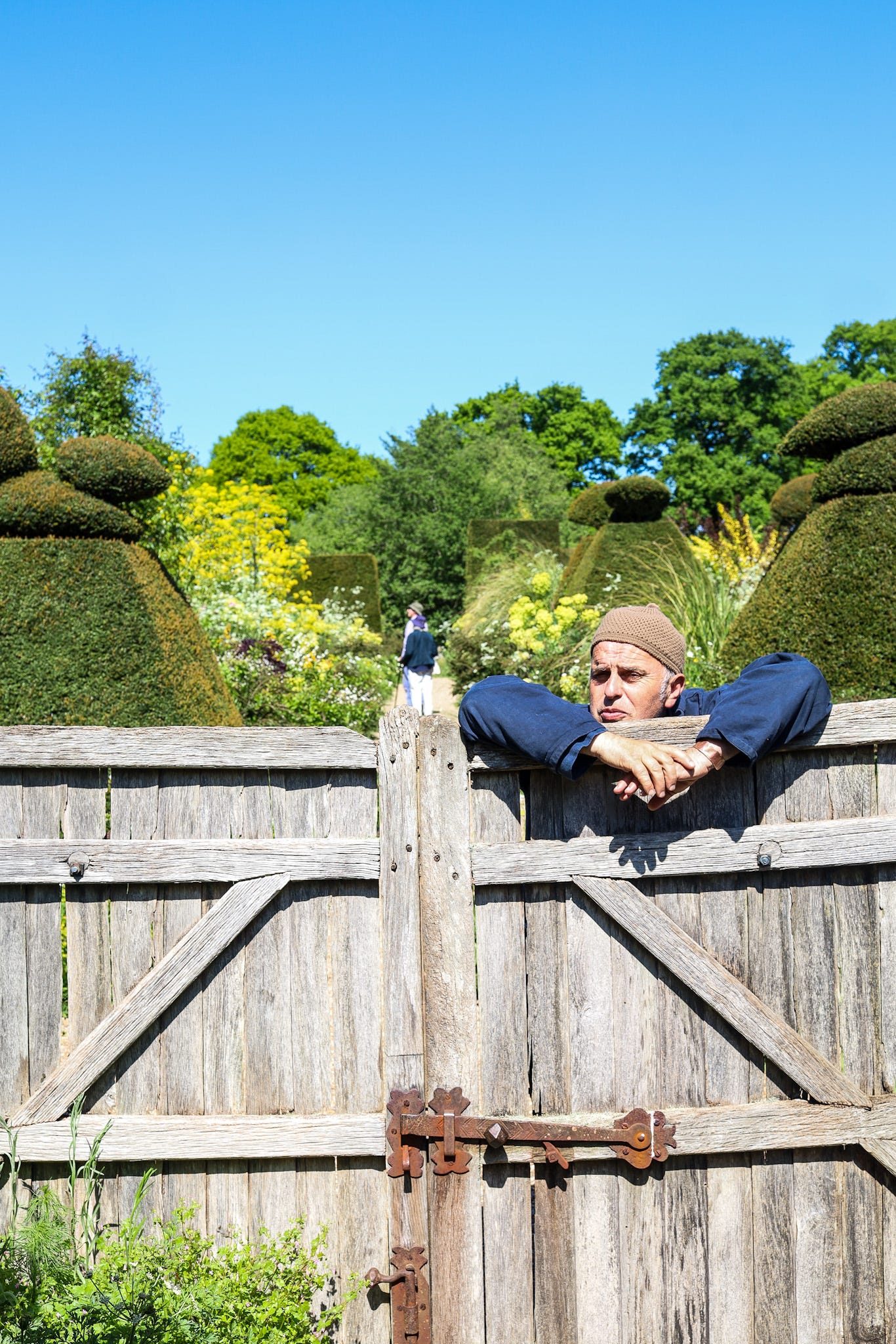
So here it is, written, or more so wrenched from within, a piecemeal of sudden flashbacks, stewed over ideas weeded from the mess of abruptly taken notes and in the end, an ode to this special place formed mainly from the feeling I have been left to live with in the two weeks since I left, that feels a lot like grief but also, gratitude, that it is over, and that it ever was. Great Dixter was, is, pure oxygen, when I didn’t even realise I had been holding my breath. It flung me back 12 years into those heady early days of having found my way, finally, in life, which so happened to be the way to a life spent in horticulture. I felt new to it again, peeled back, ready to re-learn and be humbled in getting to be a part, albeit briefly, of a place that is so much more layered and complex in its offerings and outcomes for all who spend time in it, for a day, for a week, for a year, for a lifetime, than I could’ve ever hoped to find.
Like all gardens, they are places of great human input, we use them to foster life, escape it too, to connect, to let go, we plant and nourish and raise up from the dirt the visions we have of ourselves, what brings us comfort, our loves, our memories. It speaks to our hopefulness, our determination, our need for control and our relinquishment of it. It speaks to a long lost bind between us, as a species and the natural world, we too are born from, let to loosen until it has, for the most part, entirely unraveled over time. We are completely confounded when we find the end of that rope again, pick it up and knot ourselves back into it, through a walk amongst trees, a swim in a river, the planting of a garden, the profound effect it has on us, the practice of making gardens and the realisation its language, is our language and that’s why we feel so understood in them.
I arrived on my last day at Great Dixter at 6am and entered through the gates one last time, my stride felt heavy with the weight of this knowing. I walked with purpose, however, as I was there to capture what I hadn’t yet of Dixter at its most magical. Though to be honest, it is a garden that no matter the hour, will cast its spell over you. Even in the harsh blinding glare of the highest point in the day, it fails to be washed out due to the depth to which it is planted and the spatial distribution of its bones.
The bones being its trees, topiary, towering hedges, clinging climbers, steadfast shrubs, sunken sections and their supporting walls, and the myriad of structures from the main residence to its many outbuildings, that usher in the relief and fascination of a kind of shadow play, breaking up the brightness and allowing you to better appreciate the involution of this garden. Sewn meticulously together with such painstaking consideration and yet, somehow at the very same time, maintaining the sense it is made entirely from intuition and flights of fancy that make you feel giddy with the whimsy of it all.
Yet it is the first and last light of the day that I seek to capture it best, like in all landscapes, this is when everything sings at such perfect pitch. The intricacies brought together best, when backlit, the burning through of the glow of golden hours. It offers me so many special moments through a lens but also, at these junctures which top and tail the day, the rare opportunity to be mostly alone with this remarkable place, especially in a garden as well frequented as Dixter, and alone with the energy that exists here, and there is an energy here.
It feels as if there is an ever present electricity which pervades the air and surrounds you down to and even beneath your feet, seeming to hold you to this place while you have the good fortune to grace it. It is with some kind of magnetic force, pulling me about the place, around every bend, down every path, under every arch way, I feel not in control of myself but rather, entirely given over to the wonder of what has been created here. From such love it has been born, and with such respect for its story and its founding family, such adoration of a deep friendship that was cultivated here, that it has been taken forward with, that they feel not gone from this place, those who began it so very long ago. Their home, now a place of such great consequence, from a single planting, grew a great gift to the gardening world and beyond. Alive in the waves of goodwill that I can feel come to shore here, and roll back out. It has a pulse, this garden, a heartbeat.
It is surely a vortex, my classmates who have returned here a number of times by this, my first course here (though I suspect not my last), joke with me throughout the week we have been thrown together to learn from all the corners we have come. I gush and gawp, and speak with such reverence, feeling like, with each day that passes, being here pushes further and further under my skin, so much so that it night never leave me, even long after I have left. They nod knowingly. The bug has bit.
Straight down the path I go like the aisle of a church to its alter, toward that pervading scene we garden tragics know so well of the Black and White (though more grey and cream these days) Tudor home, slanted slightly down over time to the left, and flanked eitherside with masterfully curated container planting. Down through the Front Meadow I go first, passed the gentle waves of the almost spent spires of Camassia, and other species coming in and going out but all let long into their season until they have had their chance to seed and set back into their same situation to come again next. How lucky they are, I think, to have such dependability of being here, as I find myself wishing I was a stalwart seasonal bulb in a Great Dixter meadow.

I am reminded of the melancholy I woke with in the Camassia’s wane, usually reserved for the farewell of loved ones, those moments you know will be relegated to memories between the rare occasion our opposite worlds might align once more. It has been as if Dixter is its own planet entirely and I left this one for a while, a whole week in fact, spending it rather, living in a parallel universe, a bubble of like minds, plants and endless artistry but soon it would end, so soon it would burst on the sharp corners of real life.
I would free fall back down to this earth and Great Dixter, that other universe altogether, would feel light years away. Destined to become an echo of a dream and I would be forced to live with the longing to return, not knowing when that might be but knowing, like the Americans I met who have returned so many times and who I so loved sharing this journey with and whose good humour and kindness made passing the week without my usual two sidekicks at my flank, a healthy dose of jet lag and stresses I’d packed from home, so incredibly fun and freeing. I would be like them, I knew that, I would be back, there was no doubt.

I lean into the heavy front door and enter the labyrinth of hulking timbered rooms covered in the most beautiful hand painted stencils, rooms that hug you as you go, warmed even more by the kindness and good humour of the assortment of fabulous people who busied themselves within the walls of Great Dixter and with keepsakes, art and dried flowers, crowds of ceramics covering every surface and it reminded me of home. How I collected beauty however I could find it and attached meaning to it all, stories and displayed them wherever I could find the room. A grand dwelling, Great Dixter is, for sure but it never once felt like anything other than a much loved home and refuge for all who lived, worked and studied here, whatever your level of expertise, your background, your purpose for being there.
I wandered back into the Yeomans Hall with a weight put down on my chest and lead in my boots (and the one stuck stone that had lodged itself in the sole some days ago and turned me tap dancer on every hard surface I stepped on, so well secured I decided it would come home with me). I set down my notebook and bag on the long wide table where we’d sat all week, always strewn with mugs, biscuits, blocks of chocolate and vases of flowers from the garden. Armed with only my camera, I took off out into the garden, almost falling over myself to capture this last morning, to hold it, to stop it moving on, to preserve this place in a picture (or 500). The ticking clock clawing at me to find some way to go back to the beginning.
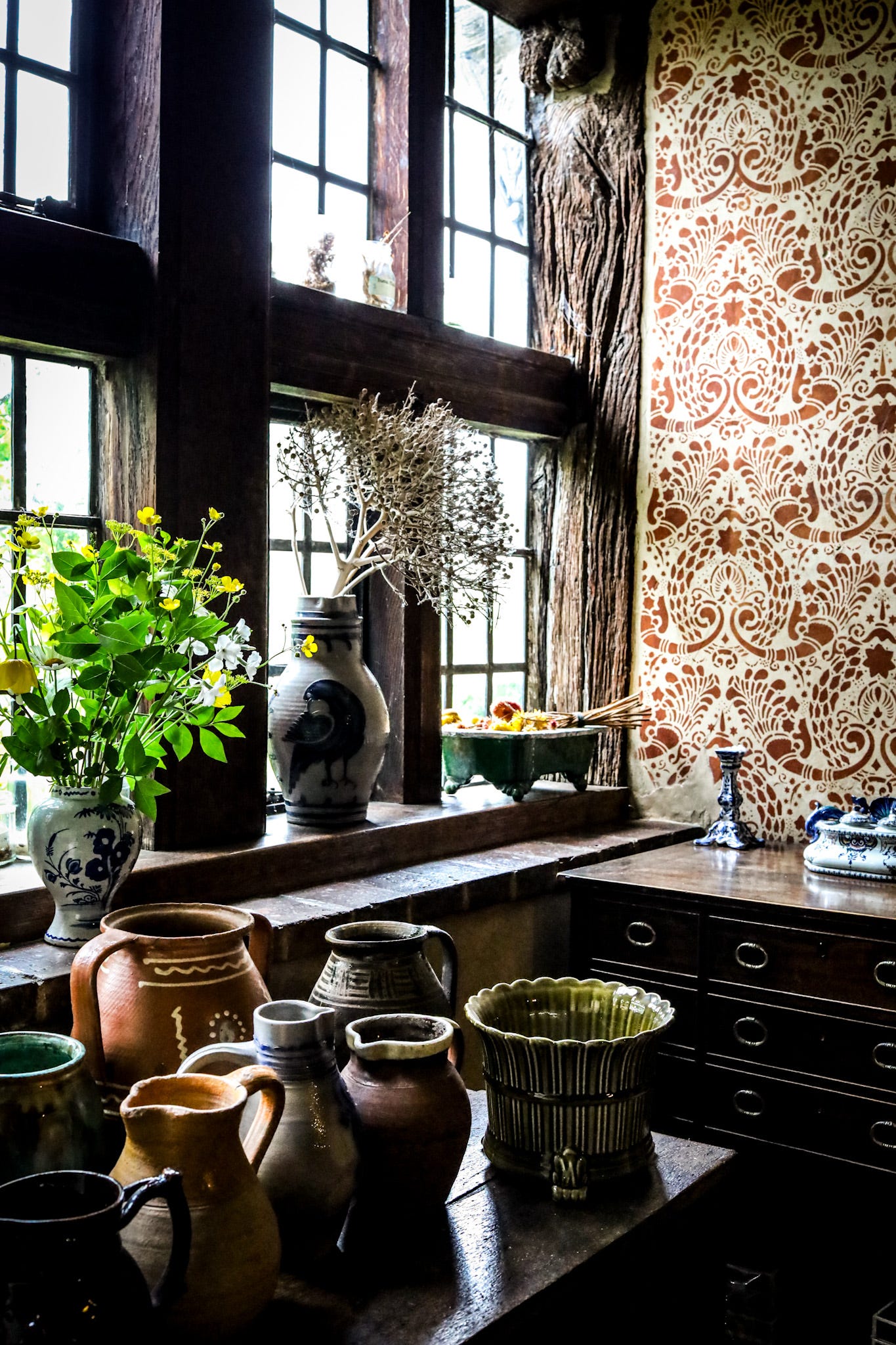
I wound my way up and over and through, the Long Border, the Barn Garden, the Peacock Garden, through Vietnam (you’ll have to ask Fergus), the Sunk Garden, the High Garden, past the compost heaps and down to the Horse Pond. Catch the radiance of a peeking sun, I instructed my eye, the glinting dew, the waking life, the crystallised cobwebs, the opening buds, the vestiges of yesterdays blooms, shifting light, miss nothing, I panicked, harness it all in a still, the detail, the unintended moments, the carefully curated spaces. I whizzed about in a frenzy until I was spat out at the meadow one could cross to the wood. The sheer beauty of it punched the breath out of my chest and I stopped. Breathe, I reminded myself. Be here.
I take a slower pace and braid my way down the sinuous mown paths through the grass seed heads, native orchids and buttercups diffusing the dawn into a luminous sheath of fine features, flung out over the land leading down into the thicket of trees, where we had walked with Fergus on that first day. Watched on by the sheep, soon to be shorn by the man I chat to briefly setting up in a corner of the paddock, I sink down into the deep greens beneath the canopy of oaks and ash, hornbeam and chestnut, the odd birch, to find the mosaic of early light flickering across the forest floor, a wood that has long been coppiced and still today, for use around the property.
I stop moving in the wood, held by the wisdom of old trees, the cradle of enveloping nature and ancient places. I stand perfectly still and if you must know, I cried. I am still not sure why. It has been a crazy few years, a crazy life, a crazy, life affirming week and there are not many places I get to stand these days, in utter stillness and quiet but for creatures and wind, that harness the same power of the landscape, the bush I knew growing up in Arnhem Land, a remote corner of Australia. It was entirely different to look at, yes but when I closed my eyes, it somehow felt the same and I was back at the beginning, not of the week as I’d been willing but of my time here, in the world and when I opened them, the full tilt of all I have experienced and has grown me, surfaced.
The sheer madness of it all, the life I was born into (some of which I have shared here in other pieces and how gardening has helped me find peace) and the tumultuous trajectory I’d been set to young, all the unbelievably good and the terribly hard, and the fight to steer it to a better way, was given over to the natural world, here, on the other side of mine but where nature bridges, and I have always found my way back to what really matters. For whatever reason, to digest in this moment that I was having the experiences I was, in the place that I was, such a long way from my start in life, had me spilling over with gratitude for all that had lead me to making the choice to come when it had not been easy to do so. The commitment of time, the immense expense in our current economic climate, the culmination of so many clusterfucks happening all at once back at home when the time came to go, all made entirely worth subjecting myself to, in this moment of quiet contemplation to distill down the metamorphic affect this would have on me, going forward.
Great Dixter is a Mecca for those of us in the worship of great gardens, a Holy Grail for horticulturists, if you will but really, all of that aside, something which struck me well beyond any plant related knowledge I might have hoped to glean while here, was that Great Dixter, simply put, is a locus of learning and not just how to be better gardeners but elementally, better humans. I had realised while standing in this place that I was in fact stood at the epicentre of something much greater than a garden, or perhaps no greater but at the level of greatness a garden can get to, whereby its ability to radiate out beyond its boundaries into the world to which the full ambit of its impact one could never truly know, transcends best practice potting or mulching or planting and becomes, best practice living.

There is goodness here, compassion and kindness, there is also wilfulness and courage, cheek and I suspect there always has been and the powers that be, destiny, random coincidence (which I do not subscribe to) didn’t put me here to make me a better gardener, though I am that too for this experience, it was to open me back up to what is possible when you lead from the heart, and don’t stay in line. It seems to me to have become, or perhaps has always been in some way or another, since its inception as a family’s garden and the botanical baptism of a boy who would go on to become one of the greatest gardeners and garden writers of all time, a place of great intent, of great meaning, a place of refuge, of nurturing, of inventiveness, of trend bucking and conversely, trend setting, a place for catalyst and a place for inquiry. A place for unfurling and turning your face to the light for the first time, or back to it.
I guess this is the repercussion of the amount of positive energy one place can send out, reverberated back, that becomes the spirit of it over time, that one feels here. Began first by a man who was born at Great Dixter over a hundred years ago and as he grew, so too did his garden, by his mother’s side, and a childlike enthusiasm (is there any better kind?) long lived into adulthood for gardens and nature and through to the very end, for the world of plants and putting them together. Christopher Lloyd, or as he was so often affectionately referred to as in the week we were with his prodigy, Fergus Garrett, Christo spent his youth, his whole life in fact, except for a brief sojourn away for school as a young man, working on this garden. Creating the foundation on which Great Dixter, the legend, has been built and extended upon by the man he left his legacy to.
I caught the last of the pink Beth’s Poppies that morning. By the days end they would be finished here, like we would be, having watched them come into bloom all week, like we had in ways, wound tight against the challenges of daily life, let to forget for a moment and open back up to the concentrated joy of practically living every waking moment in a garden. They pop, lolly pink against the acid lime fairy floss heads of euphorbia, ferula flowers standing over us like cloud pruned trees, the purple black bulbs of Queen of the Night tulips, alongside the white flecks of Ox Eye Daisies and Cow Parsley.
Oh Cow Parsley, how I will forever associate it with Great Dixter, the hallmark of the local hedgerows and roadsides, as much at home in one of the most famous gardens in the world, and with the one and only, Fergus Garrett, the man who sees wonder in it all, for he himself, is a wonder. Fergus sees the garden and I believe it sees him, they seem to talk, having become one in the same, mirroring eachother, the garden is a man, the man is the garden, both of great skill and great repose. A garden that is both rigorously kept and routinely released from it, in equal measure, a man that is infinitely knowledgeable to intimidating and often overwhelming heights and then as approachable as a dandelion let to grow amongst the rare specimens, both treated of equal importance because to Fergus, they are, and therein lies your first lesson.
He is both the rare specimen and the dandelion and you should know that both matter as much as the other, and this is true of all things. There is no good or bad, in a garden, there is what brings you joy, there is what grows from love and the pursuit of it, there is openness to all ideas, there is what we create and what nature intends, and none of it need be judged, wrong or right. If it has cultivated happiness and offers peace to its maker, it is exactly as it should be and there is beauty in that but if you wish to know the rules, he can teach you those too, and then how to pay them no attention at all, if that’s what you want and you do because that is where the most exciting things can happen.
Open in a way that almost brings you to tears at times, there is such grace to how much of himself, Fergus lets you see that belongs to his world beyond the garden he has weaved his wonder through, that for a moment you forget the unfathomable impact he has had on the horticultural world, and he feels more like family. Then you realise they are one in the same, the reason the garden omits and evokes the strong responses it does, is because that’s what the garden is made with, the same unimpeded, unapologetic and unabashed love and joy with which Fergus seems to live his life, and perhaps Christo before him.
I first had the pleasure of sharing a room with Fergus Garrett at the Australian Landscape Conference a few years ago back home in Melbourne, whereby I walked out of his talk feeling like a thousand light bulbs had gone off in my brain. To hear, first hand, how Great dixter had been ranked the 25th most biodiverse place in the United Kingdom and stunned ecologists the world over who had not considered gardens for testing in the first place, usually places lacking ecosystem and variety of life due to the intensive and often “unfriendly” way they are gardened and the sparseness in plant species used. From that moment on I had felt pulled to Great Dixter, that vortex was pulling me across three oceans and a whole plethora of reasons it wasn’t a good time to go but as always, Hugo stood in my corner and pushed me out of it and into something I didn’t even know how much I needed. To be in the presence of a place like, Great Dixter and under the tutelage of someone like, Fergus Garrett.
There is, in fact, so much to learn from Fergus, almost more than your brain can absorb in a week under his guidance that rather, it will take months, likely years to digest and most of this learning is about gardens, yes, yet some of it, however, is about life and how to live it. What you didn’t know you came here for, becomes what you’re grateful you get to leave with, alongside the ability to stake an unruly perennial with peasticks and get the layout right on a long border when ensuring planting succession. I come away with a notebook full of this learning, more than I could have ever hoped for but also a heart full of the rest, and I would never have even thought to hope for that.
If I am completely honest my week at Great Dixter is a blur, the best possible kind, a whirlwind of all that is wonderful about this place whizzing about you so fast it whips your feet off the winding garden paths and leaves you levitating above it, lightheaded and wanting for more. The people, the learning, the house, the history, the legacies of its creators and its custodians, the saturation, the heady heights of the beauty that will shake your core here and such pulsing, thronging life it moves currents through you, as you move through it. If you didn’t know you weren’t fully awake, you will after a week here, a week of utter enthrallment in a place that can only be described as something other, something extraordinary, something I suspect, will haunt me always.
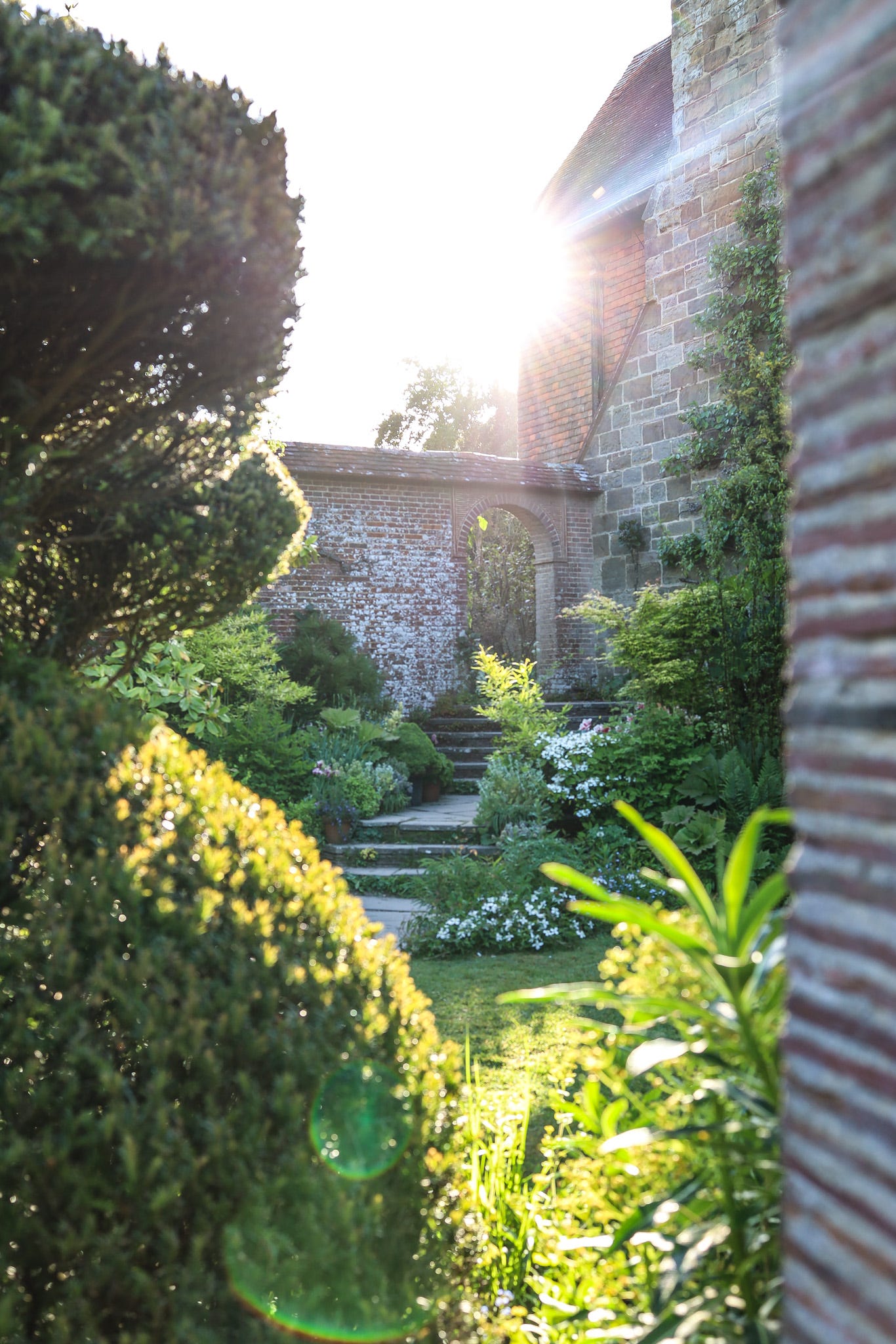
You will learn lots about plants here, good shape, textures and foliage. You will learn lots about the cultivating of a healthy garden, the maintaining of them, the propagating, the planning of how best to use them with eachother and how to ensure them season to season. You will learn new skills across a number of different areas. You will learn to see things differently. Question your choices. You will learn to look for opportunities. You will learn which are Fergus’s Top 5 gardens and the answers will surprise and teach you much about the kind of person he is. You will be a better gardener for coming here, this almost goes without saying, after all you are at Great Dixter and you are being taught by Fergus Garrett but it also stretches beyond that, as I have said, not only in the impression that this place and its people will leave on you but in the millions of small choices that the Dixter team makes to ensure that the time you spend with them is truly immersive.

You will be fed within an inch of your life with the most jaw dropping spreads of artfully presented food which is as delicious and nurturing as it is beautiful to look at. You’ll find yourself talking amongst yourselves and telling your loved ones upon your return home, about the incredible lunches and dinners you were made, almost as much as you will talk about the garden itself and the endless stream of Fergus’s amazing team who join you daily for meals. Both from the house and the garden, permanent fixtures and scholarship winners whose time is more fleeting, who work alongside Fergus with endlessly fascinating stories of their own as to how they came to be here.









You will walk beyond the garden and into the nursery that, as someone from a nursey background while undergoing my hort training, was gobsmacked at not only how beautiful the nursery is, how well it runs and how meticulously it is maintained but how much there was that I could still learn in something like propagation practices that they use here at Great Dixter. To take that which grows in the garden and make it available to everyone else, a whopping 40,000 plants annually in fact, so the average gardener is able to buy themselves a little, or a whole lot if I didn’t have Australian quarantine laws to adhere to, to bring a bit of Dixter home with them into their own gardens. You will also find a wonderful cafe here, a shop too that one can’t help do a lot of damage in, especially when you can’t take home the plants.
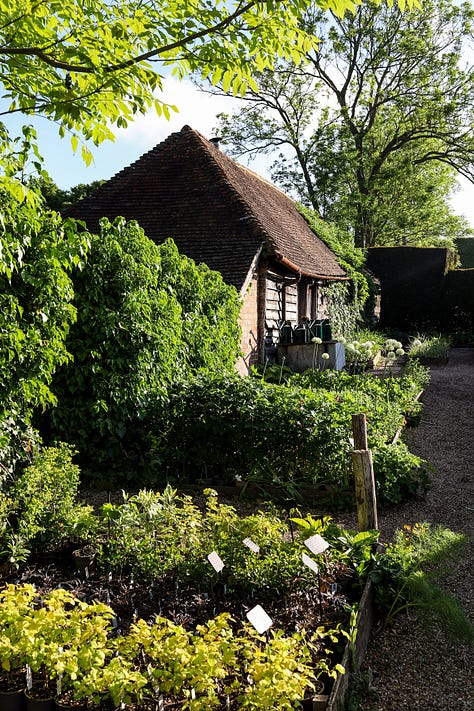
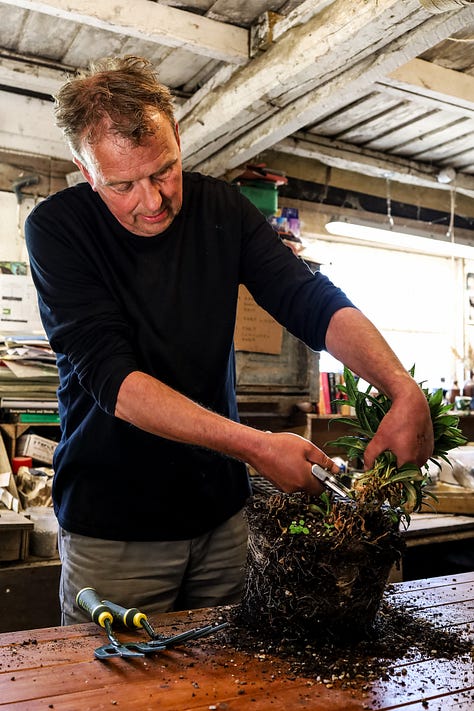
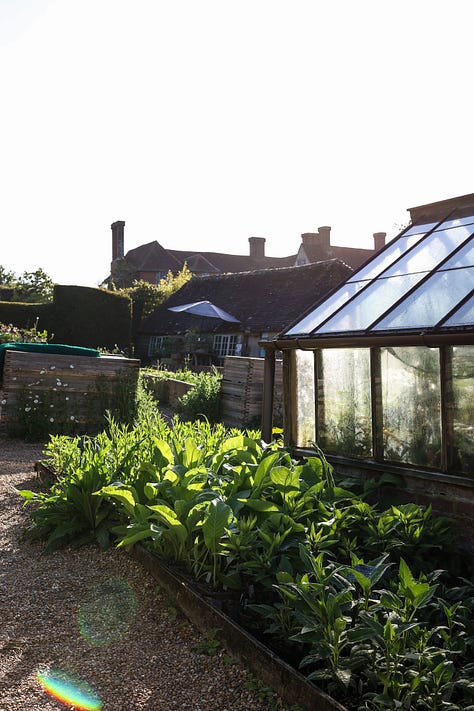
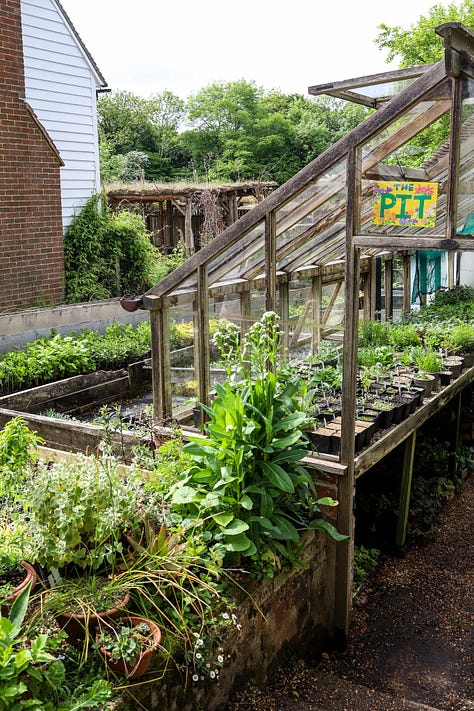
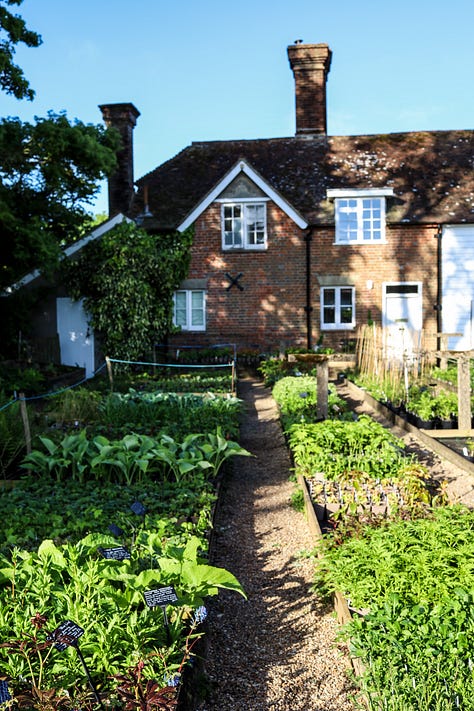
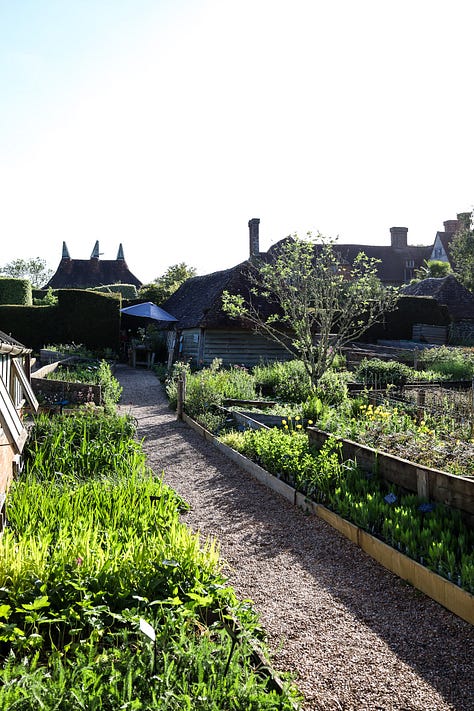
Then there is the looming 500 year old wood working barn which is a staggering 27 metres long, hidden out of the way by hedges and established trees. A craftsperson’s dream to behold, where traditional techniques are adhered to and the teaching of these techniques meet needs in the greater community and have created a dynamic team of volunteers who welcome the opportunity to share their skills. The archaic beauty of time honoured tools which remind me of my own father’s work sheds, a sculptor and yacht builder, the strewn curls of shaven timber cover the entire floor and crunch underfoot, it immediately takes me back.
You can find the hurdles used across the garden freshly carved from green wood, they lean pieced together and expectant, soon they will find their place on the edge of a garden bed for the season, and hold the tipping growth of the most rampant months back from the path. Cleaned trunks line the walls awaiting their purpose and the new blonde versions of weathered grey benches one finds rest on as you venture through the Great Dixter property, sit stacked on top eachother.
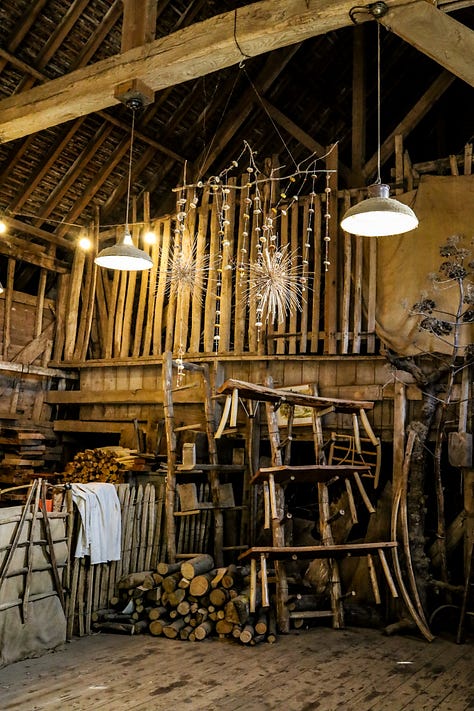

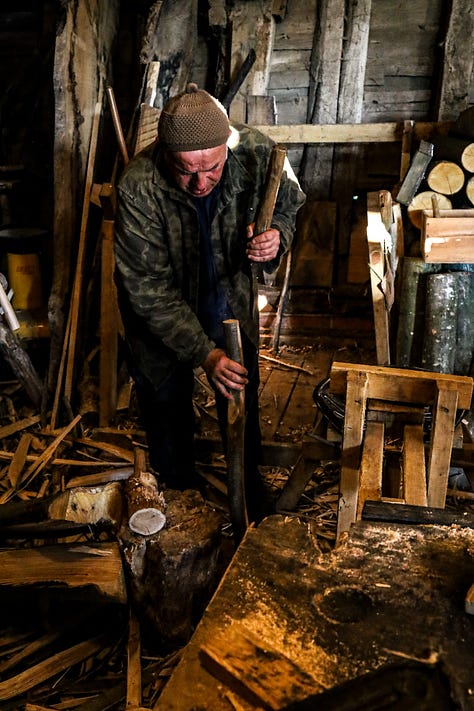
The whole place smells exceptional, that galvanising fragrance of such calming quality, the sweet but earthy natural oils of worked wood and as I find myself enjoying yet another element of Dixter that I’d not even anticipated would feature in my thinking for the week, I think two things. How much of a closed loop property Great Dixter is and how that only adds to the enjoyment of experiencing it, the carefully considerate nature of all they do and how I wish Hugo could be here to see this, especially the wood working shed, something he enjoys doing. I immediately begin to wonder if I can send him on a course here, simultaneously? How fun would that be!
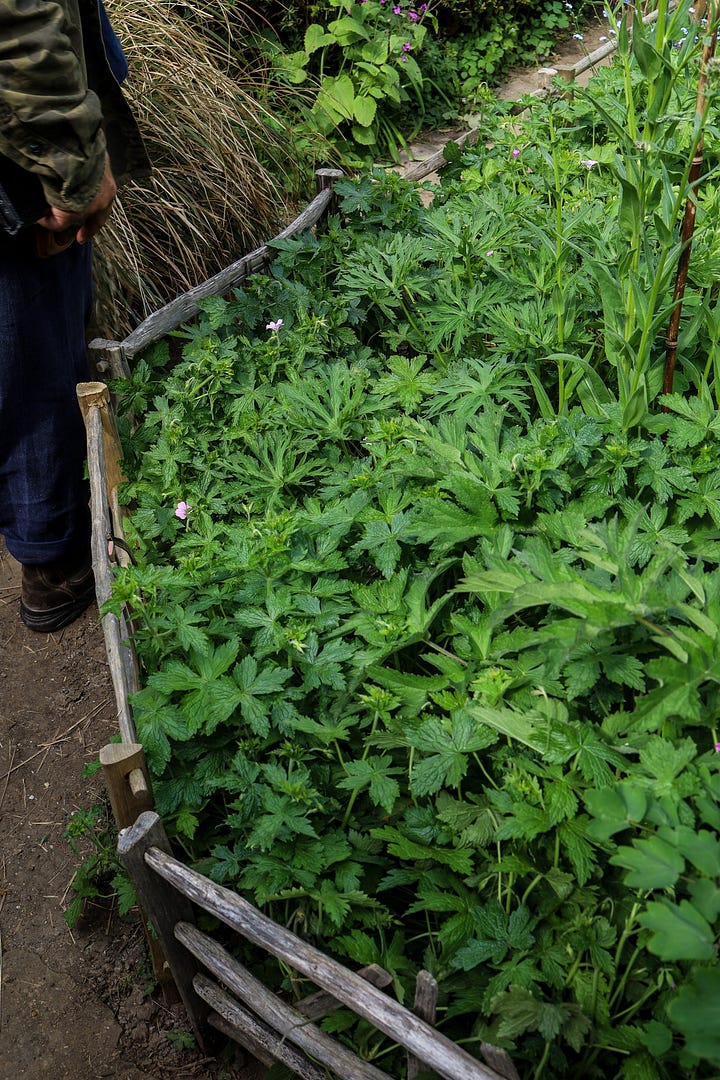
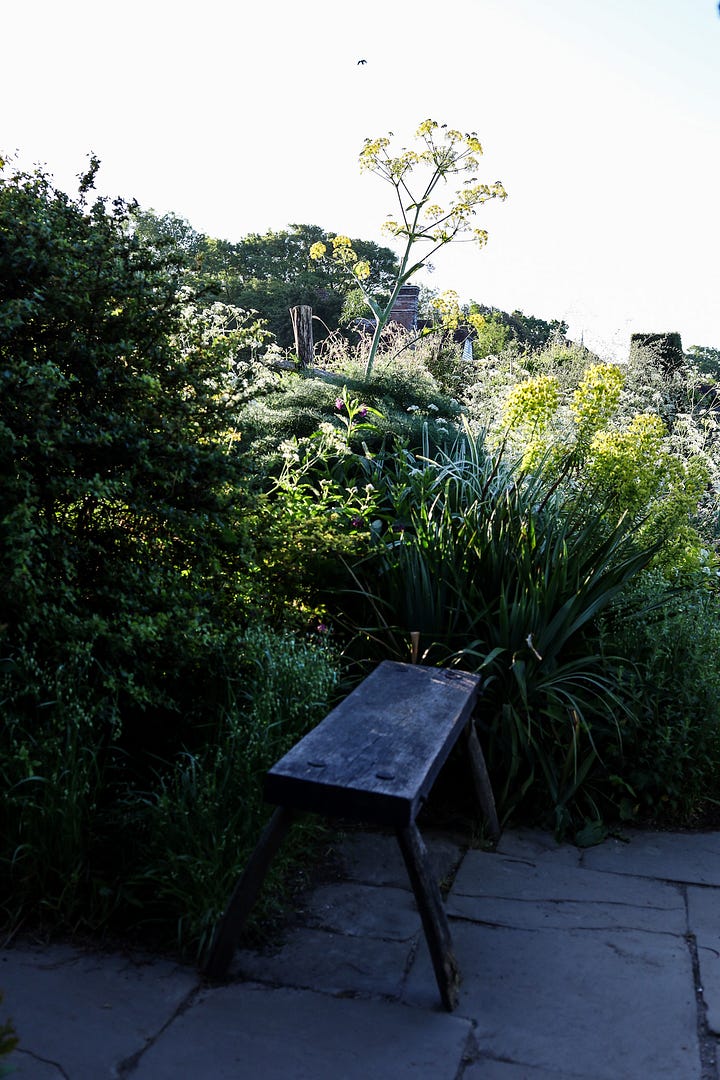
From the ornamental garden to the food garden to managemant and maintenance of adjoining farm land, barns and meadows and wood. To the nursery and the cafe to the house and kitchen. It is a joy to be introduced to life here and left to feel like you’ve been part way enfolded into a family more so than a place of employment or school, at the end of each day you are lucky enough to be in their world.
As the sun slowly finds gaps through which to seep, pouring soft honey light over the entirety of the garden hiding down in its hedges, it cannot escape the beginning of a new day or me my last, here. Like diamond dust has been dispersed over every leaf, every petal, all the world sparkles and I smile deliriously at the magic of being able to see it. Suddenly, I am ok to go. Thankful I had had the chance to know such a place, even if just for a short time beyond the pages of my books.
I make myself the promise that I will return again, alone first, to see it in new seasons and submerge myself down into the elixir of life that being here has felt like. Then I will bring my family too, so that they might know it and better understand what filled my heart so and captured my imagination. My little one who would love its endless ducking and diving paths to places begging you to explore, before she grows beyond the wanting to run along them, dreaming up fantastical stories as she goes and feeding off the fun and frivolity only children (and I think sometimes, Christo and Fergus) truly understand the importance of, in a garden, and in life.
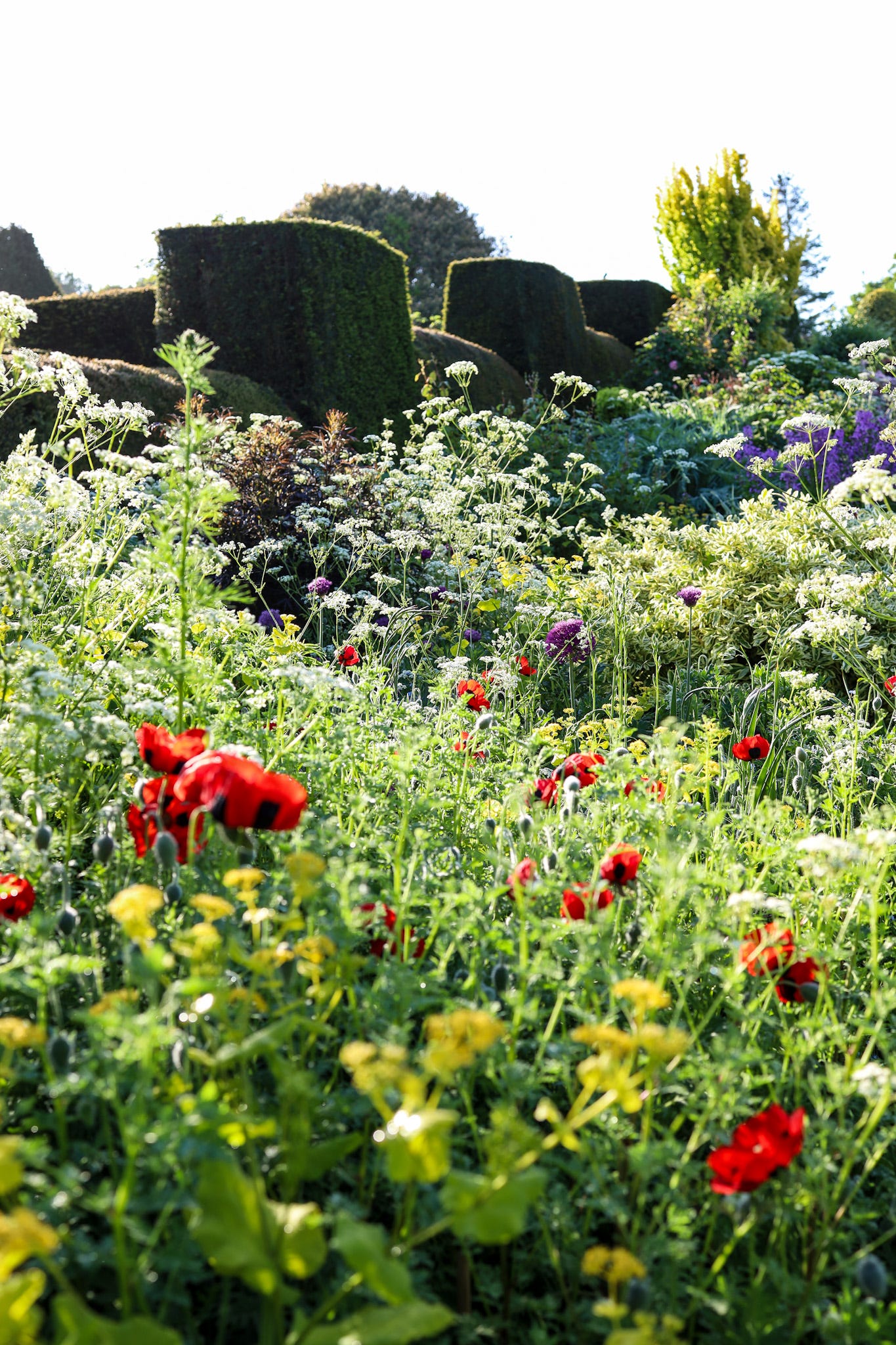
It was the dream of Great Dixter that took me there but it is the realisation that it is so much more than you could have ever imagined which will see me revisiting and returning to this garden throughout the rest of my life. Thank you for having me, Great Dixter Team, the pleasure was all mine.
Pip xo
Great Dixter - The Full Picture Gallery

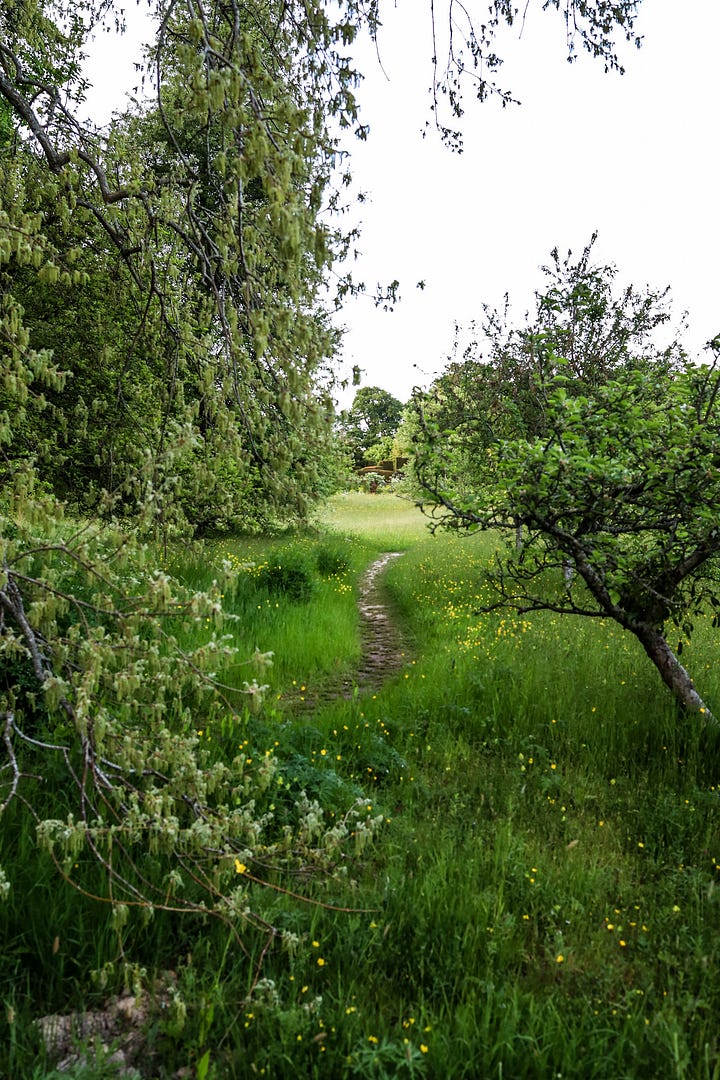
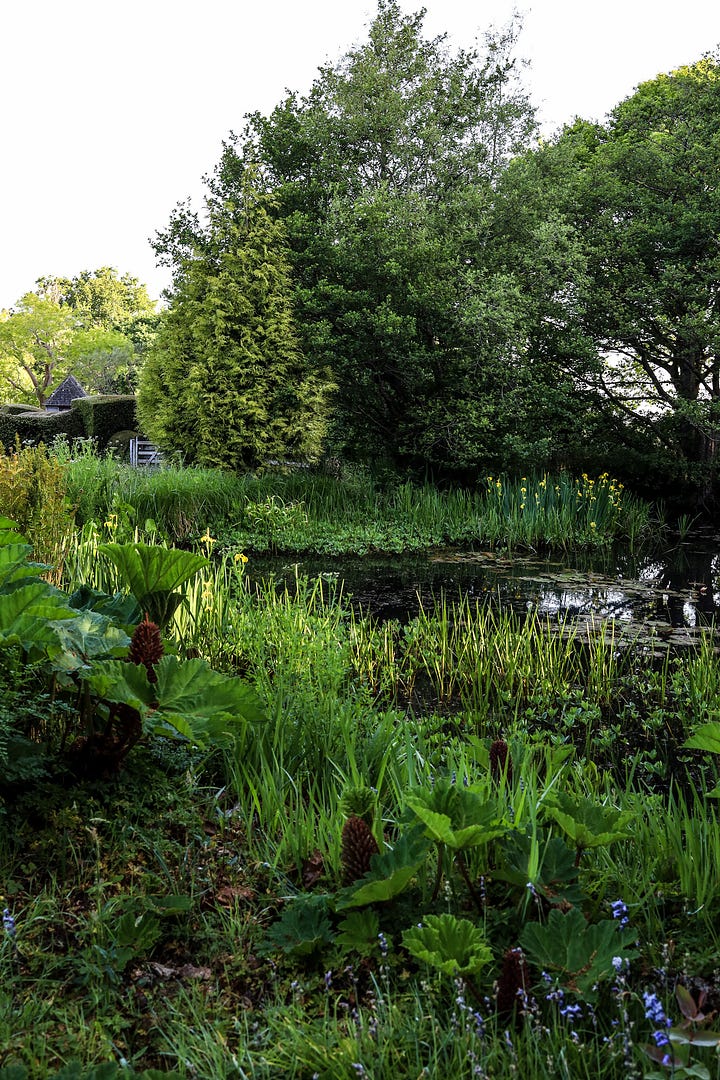
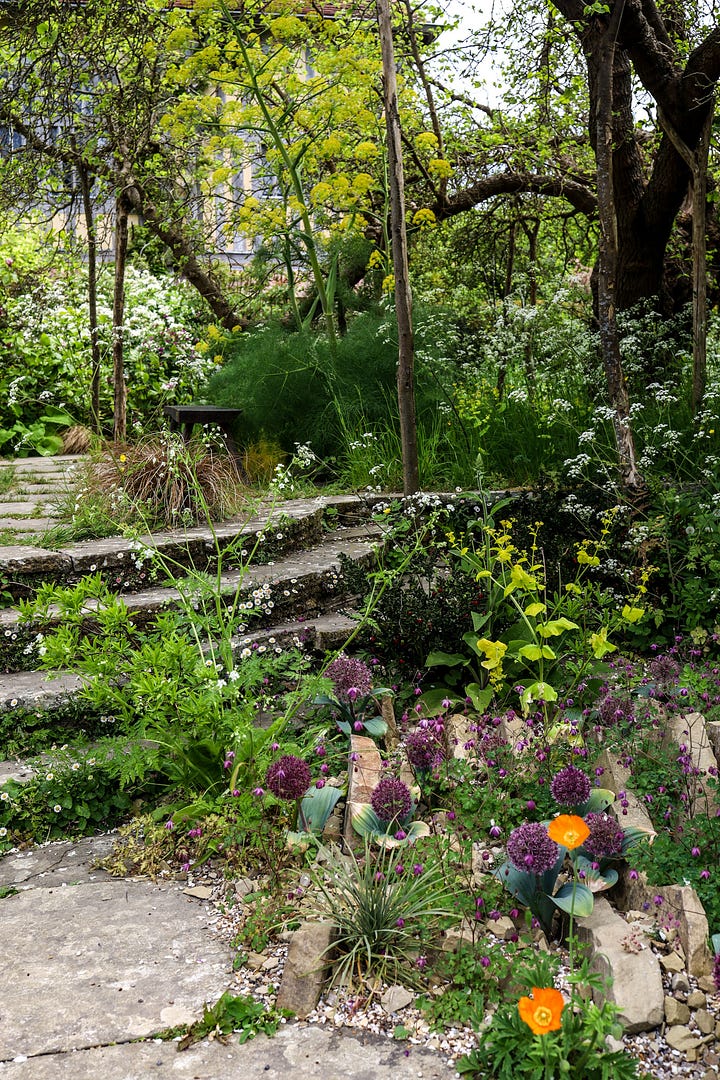
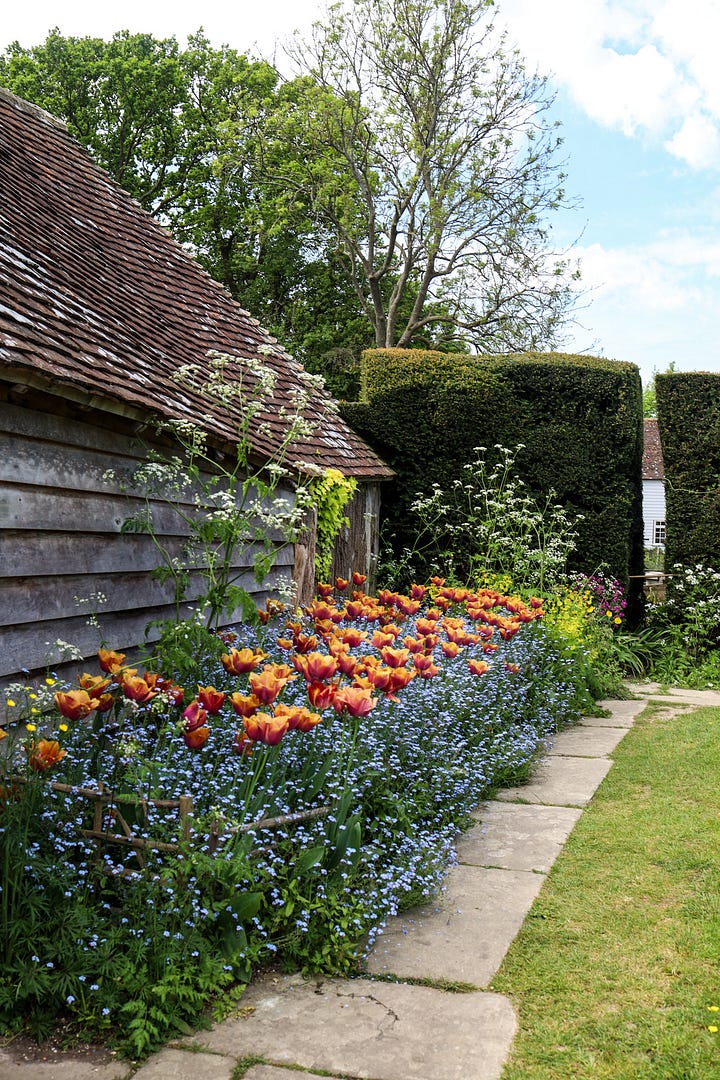
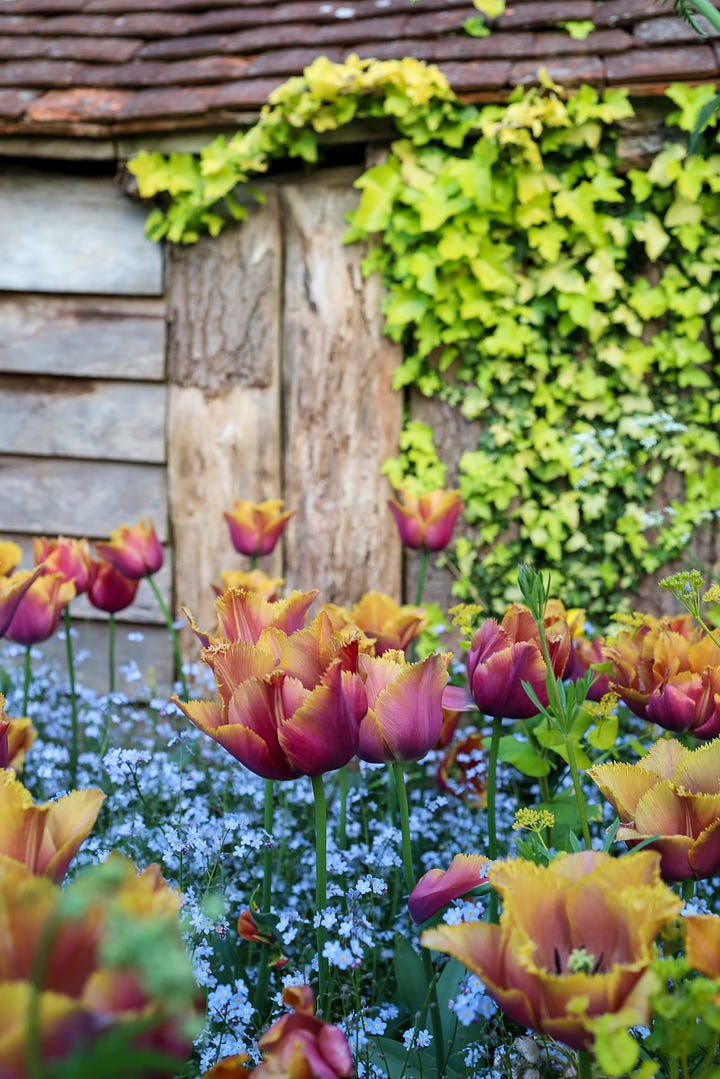

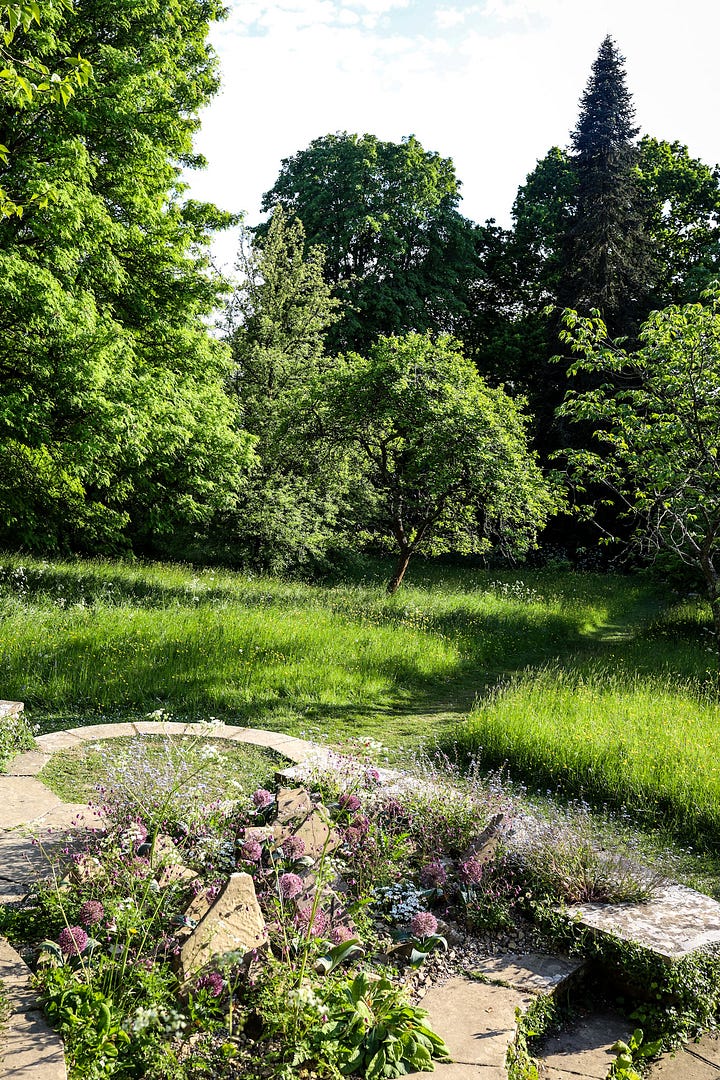
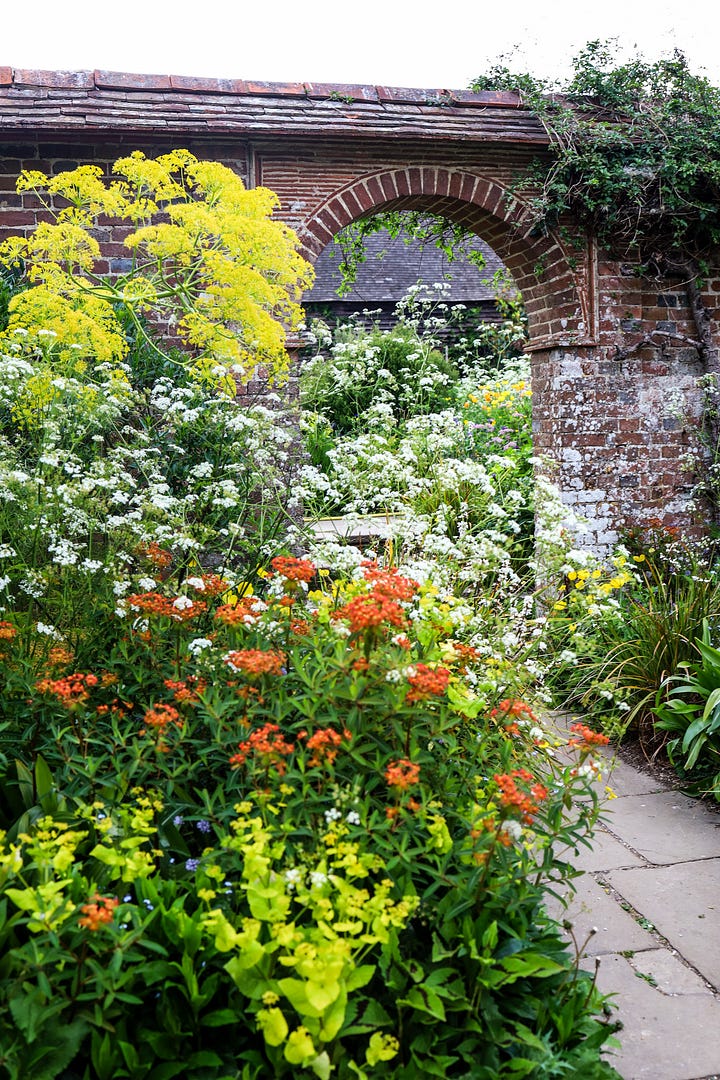
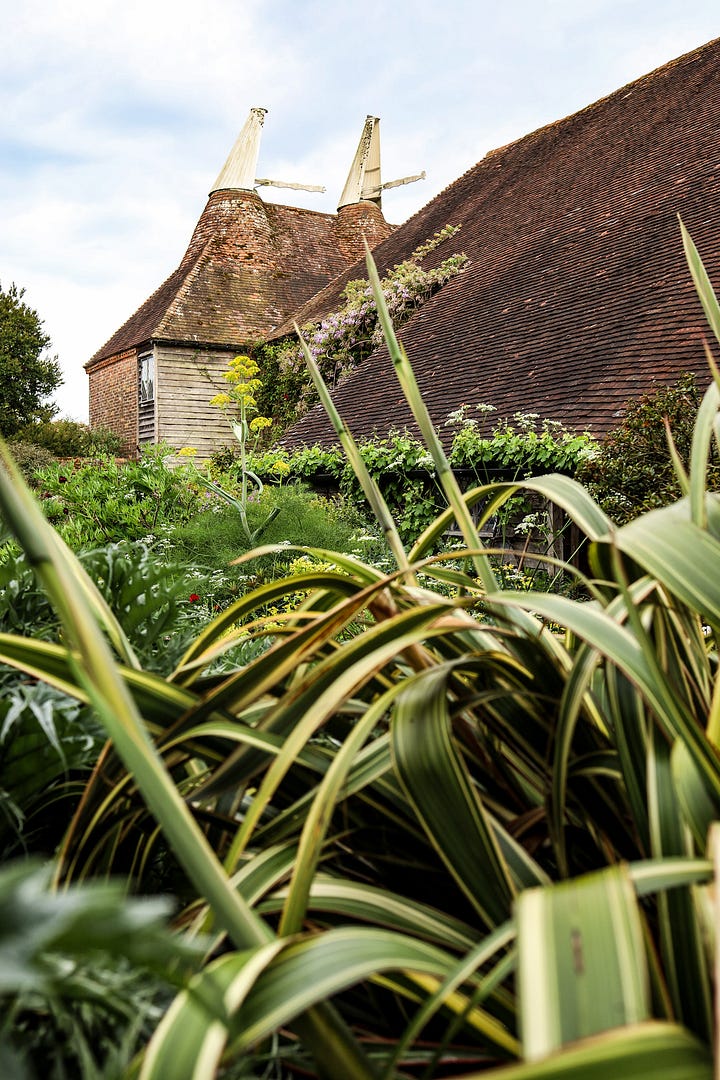
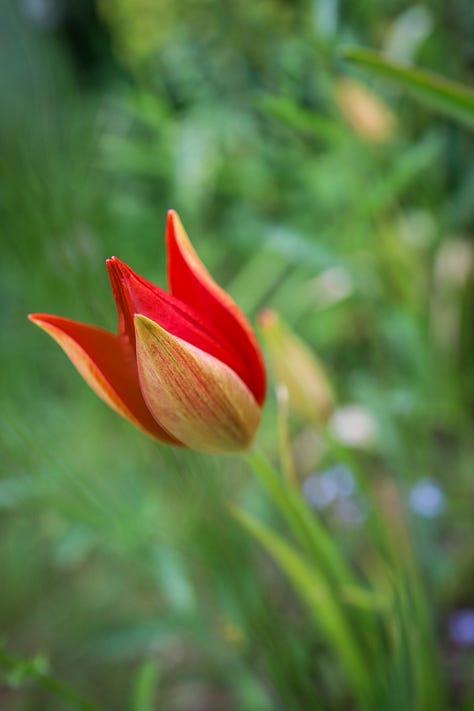
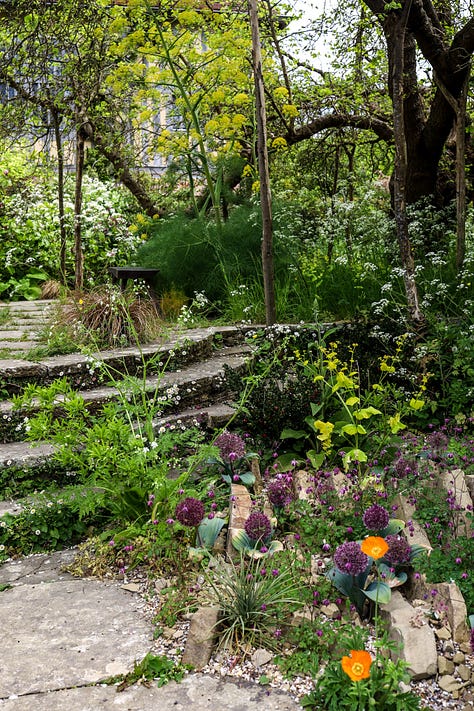
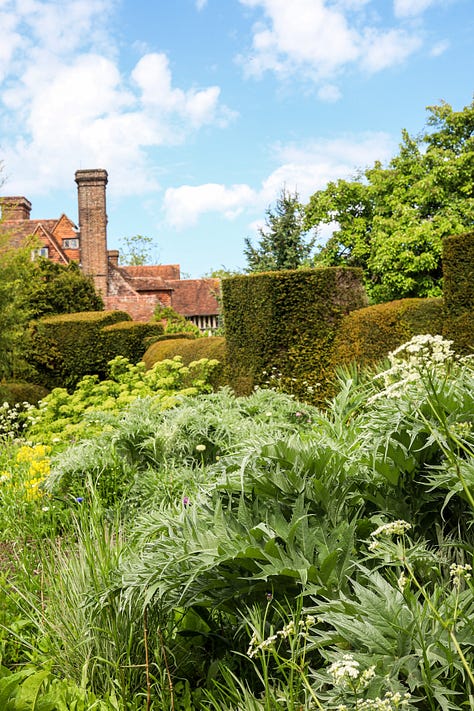
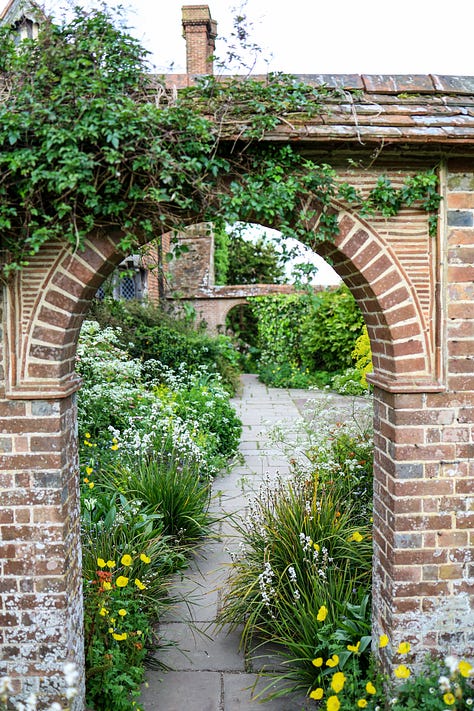
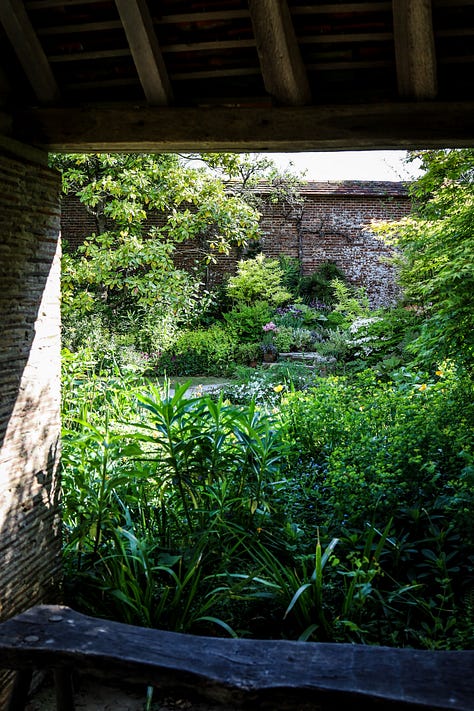

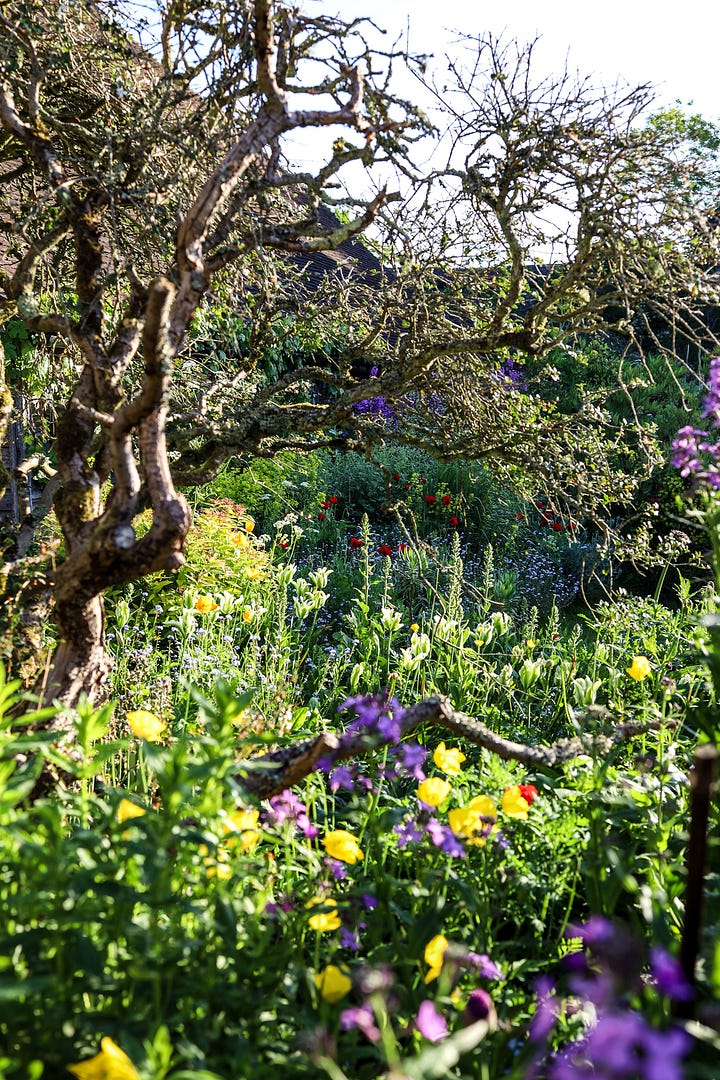
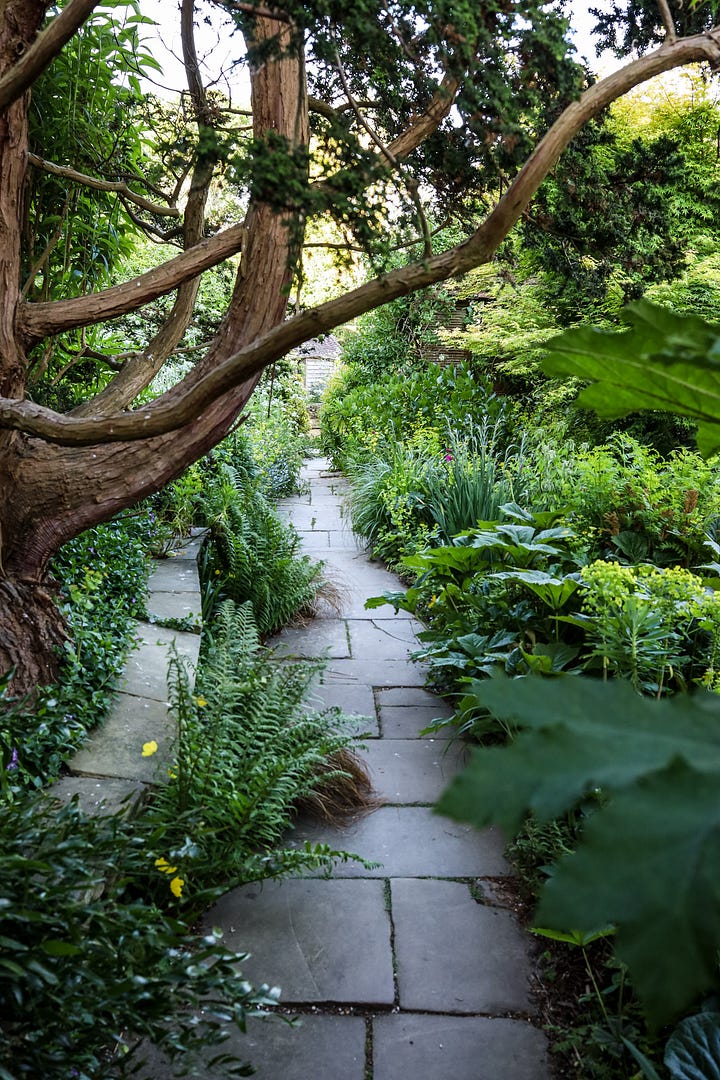
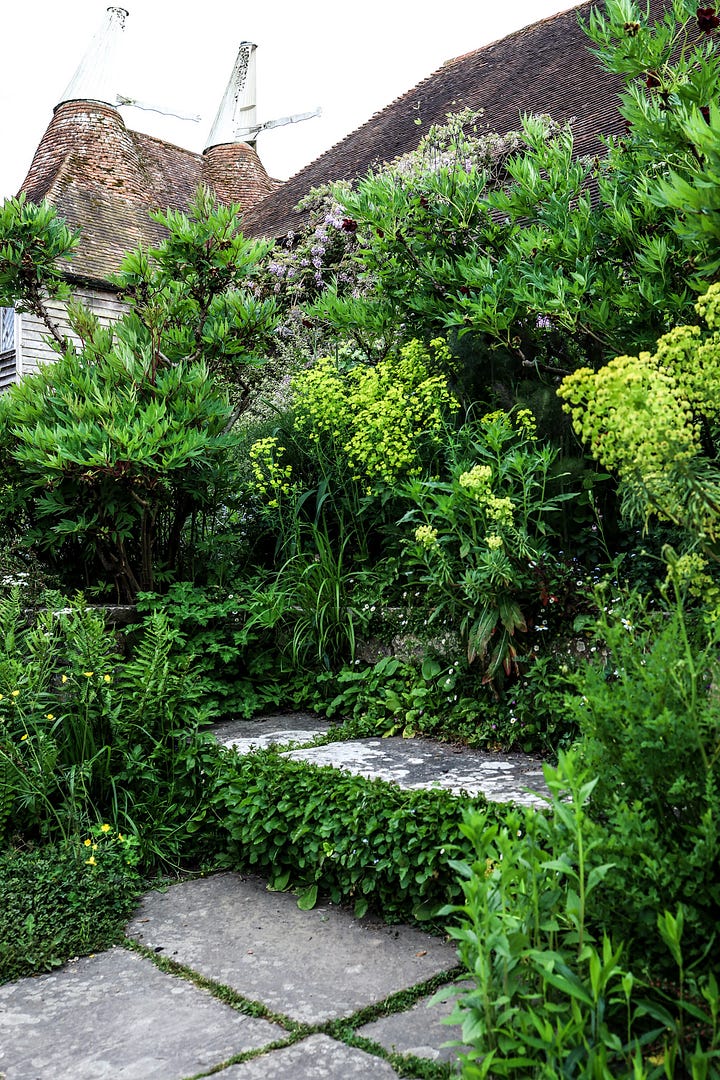
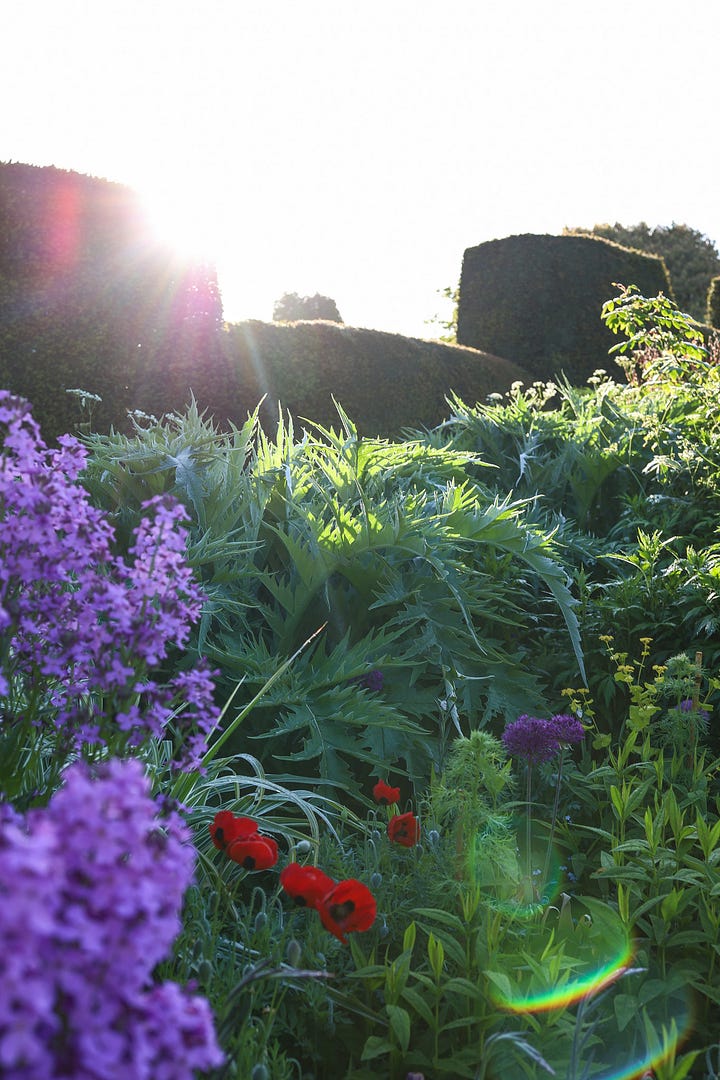
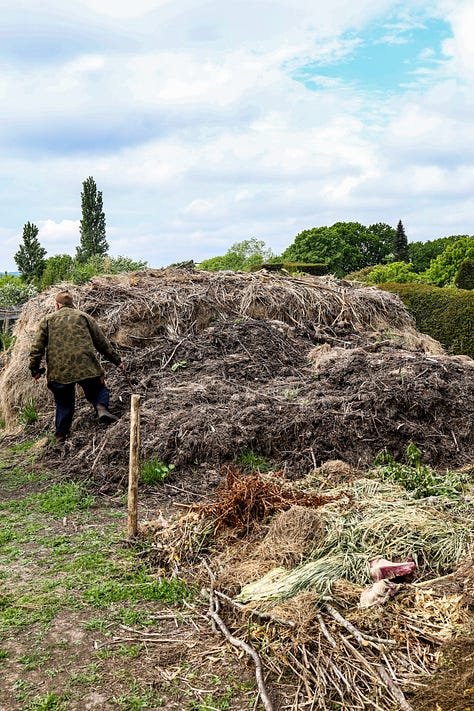
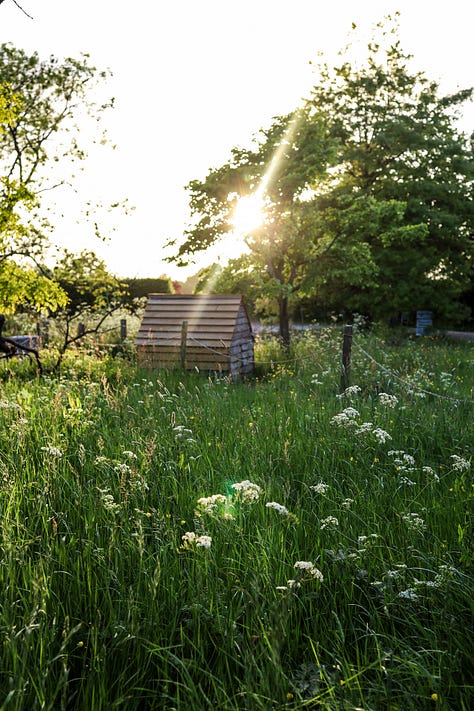
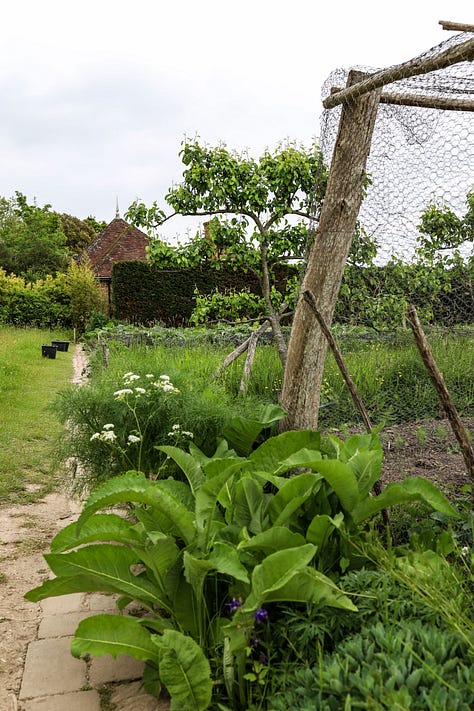
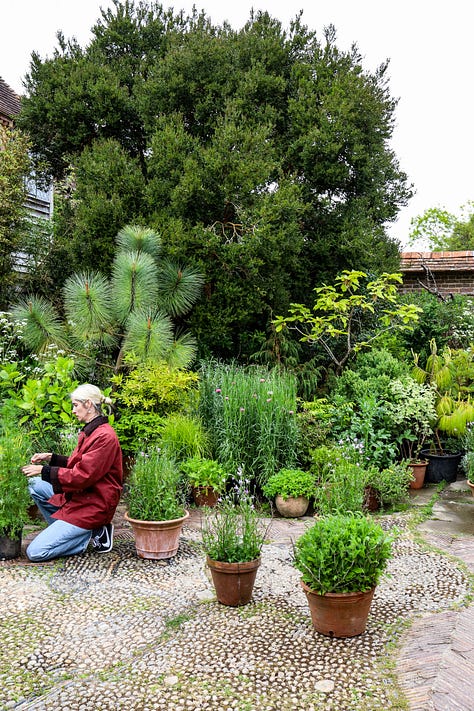
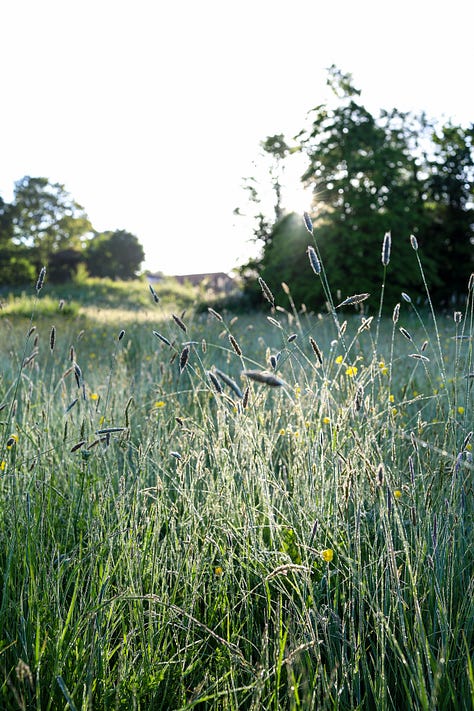
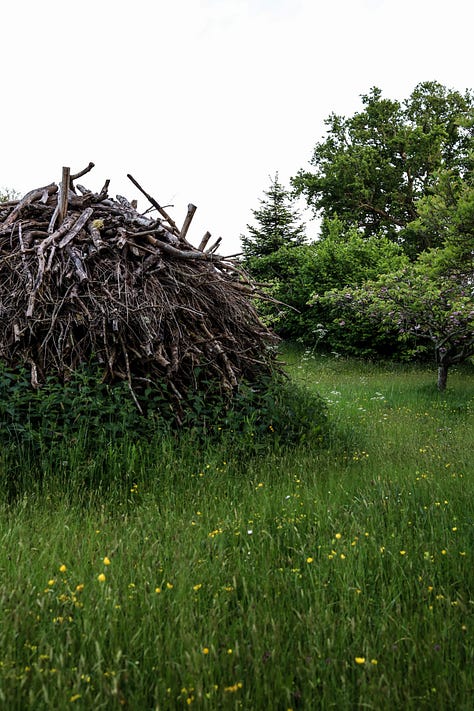
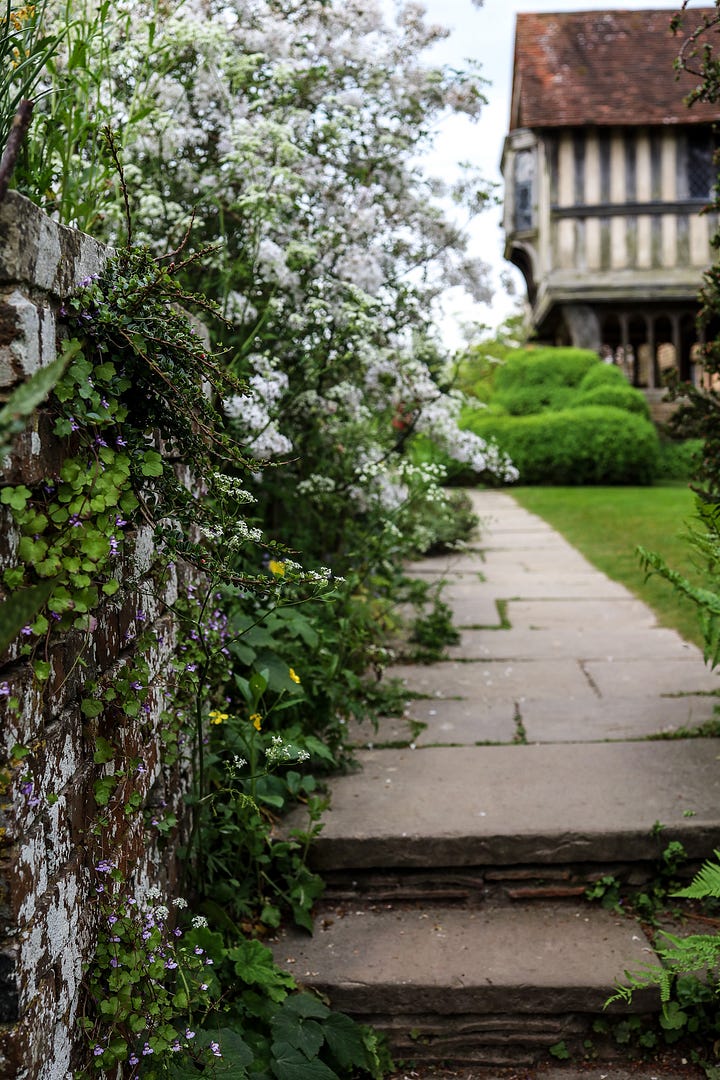
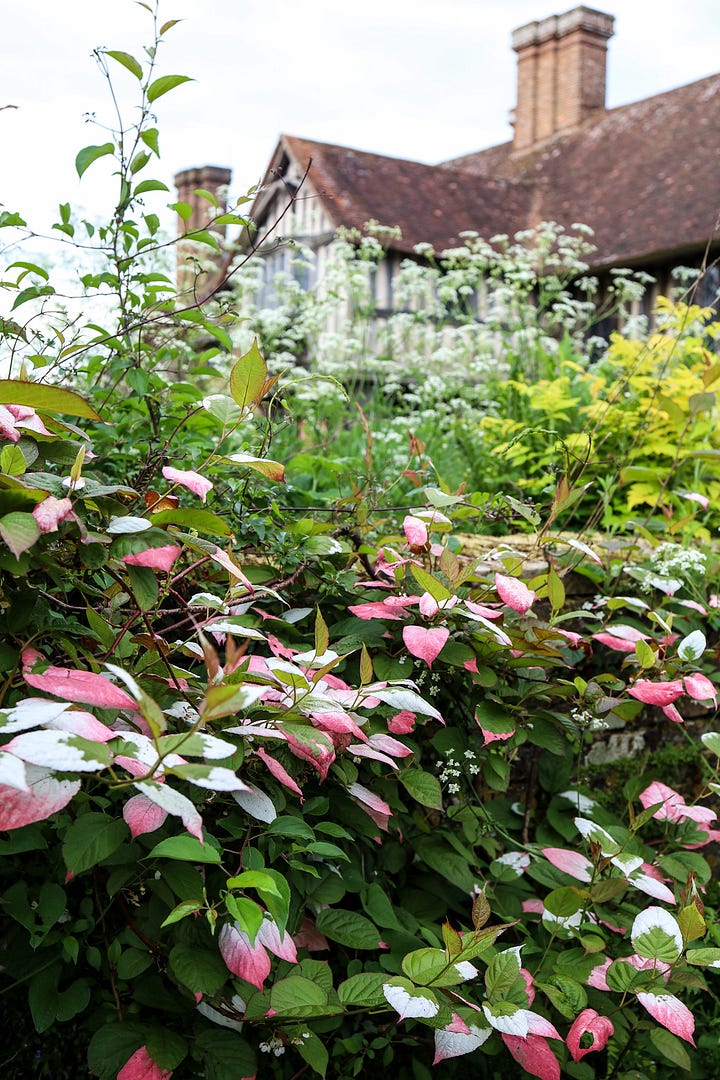
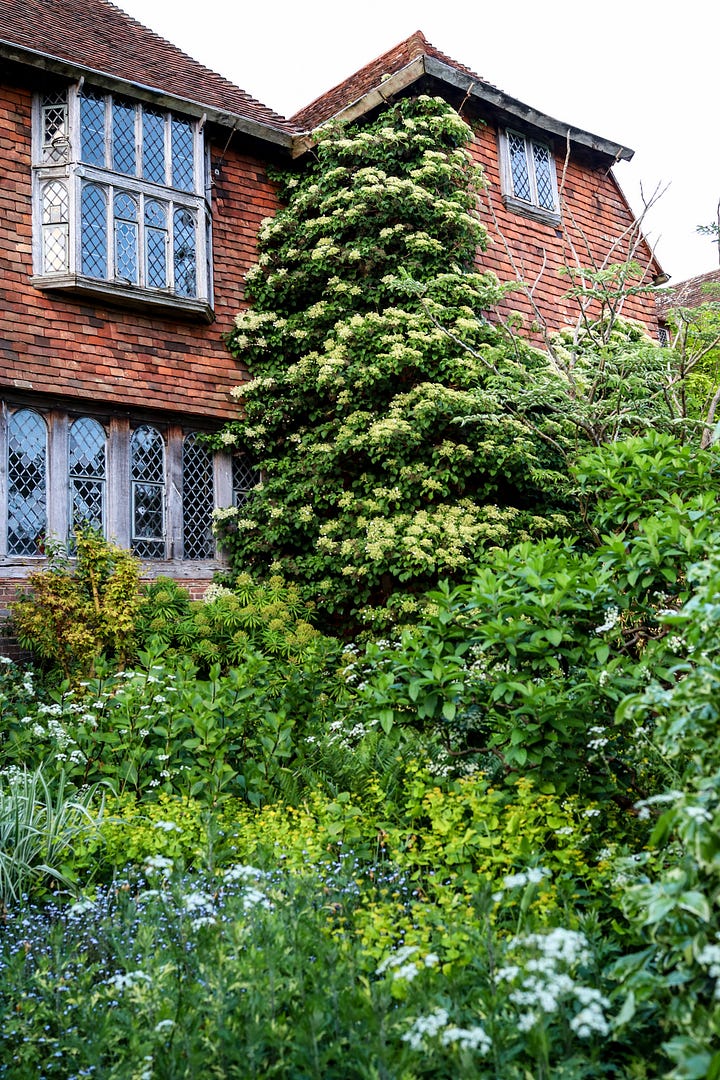
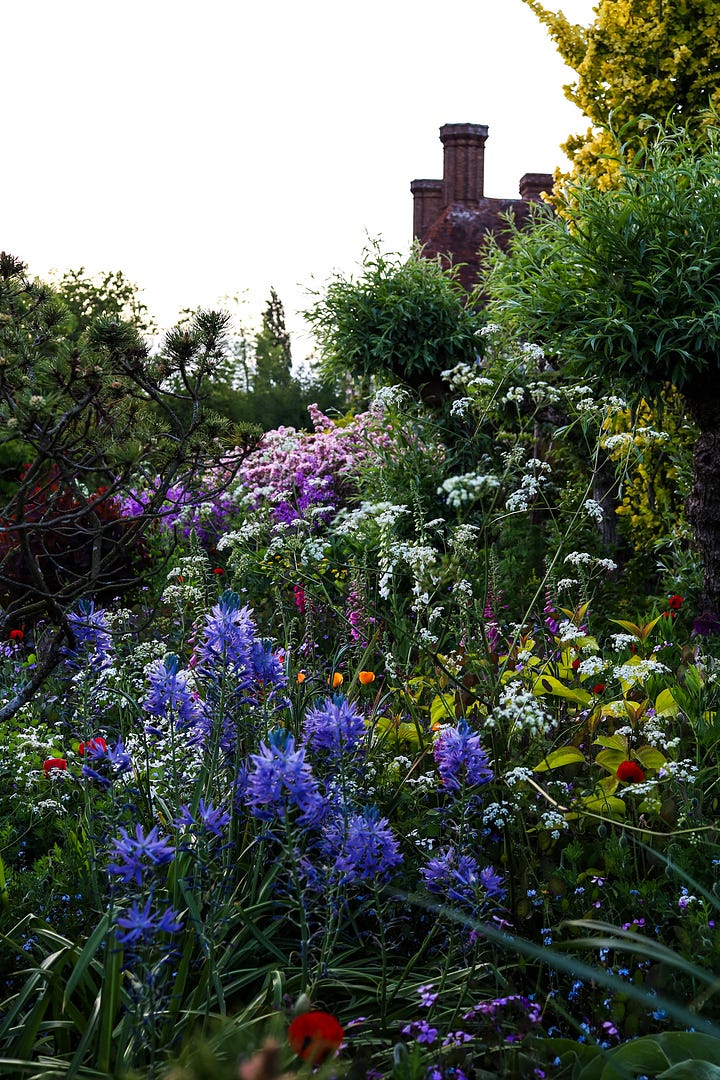
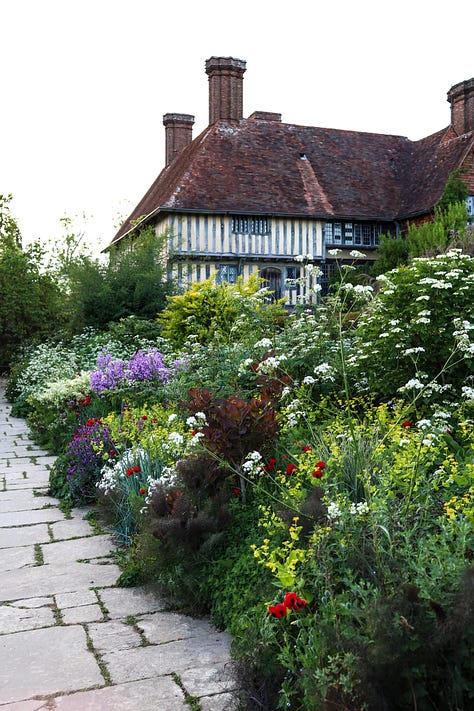
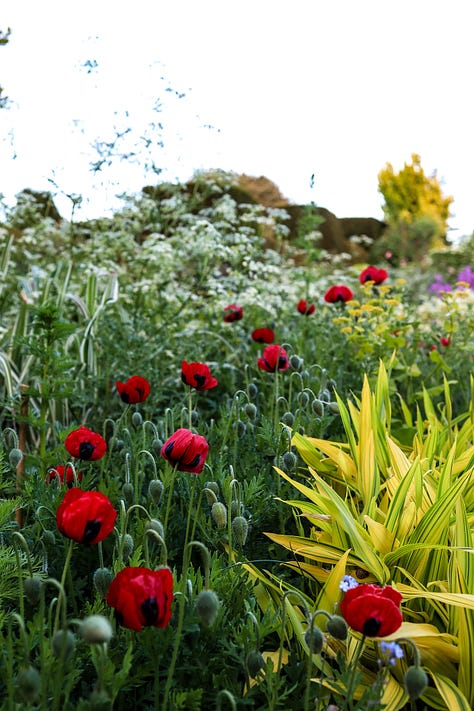
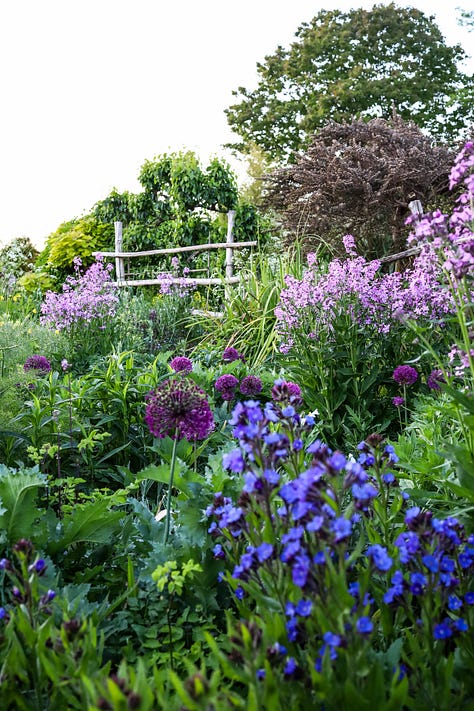
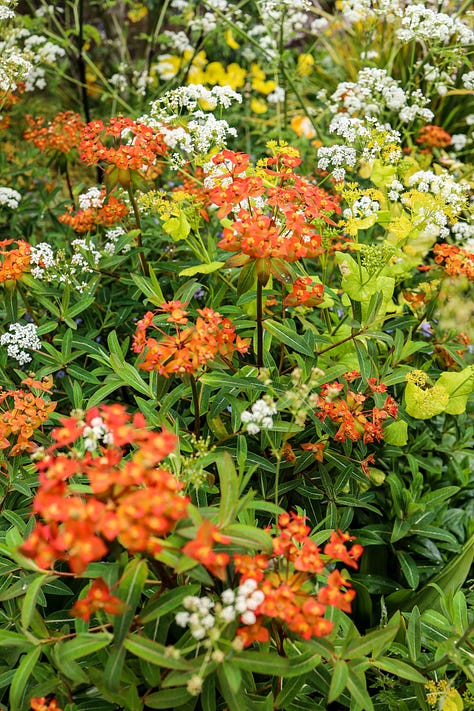
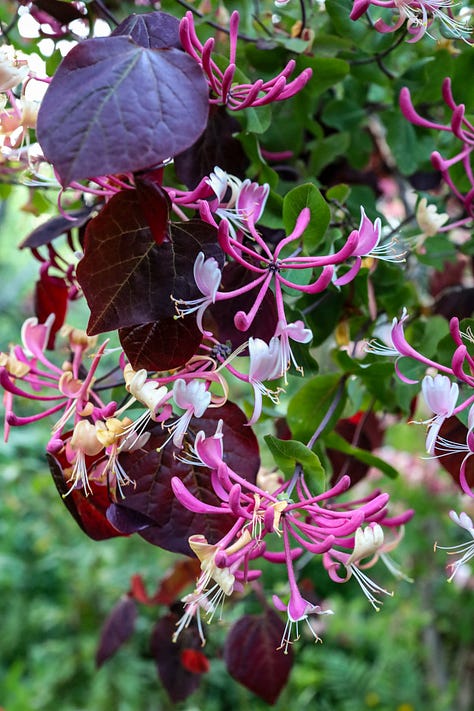
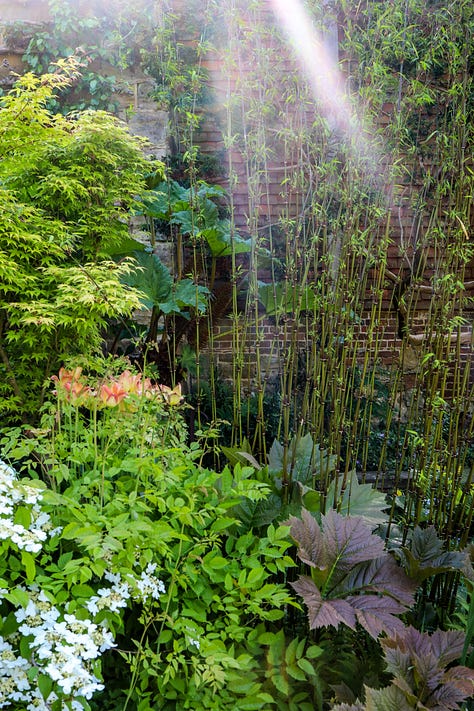
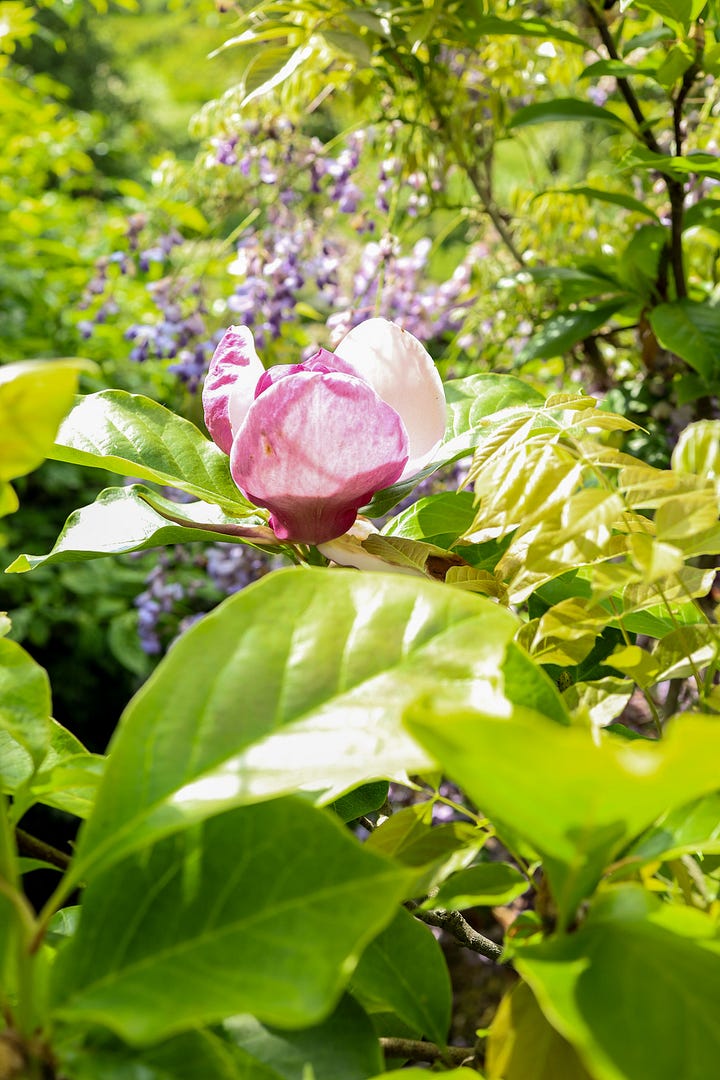
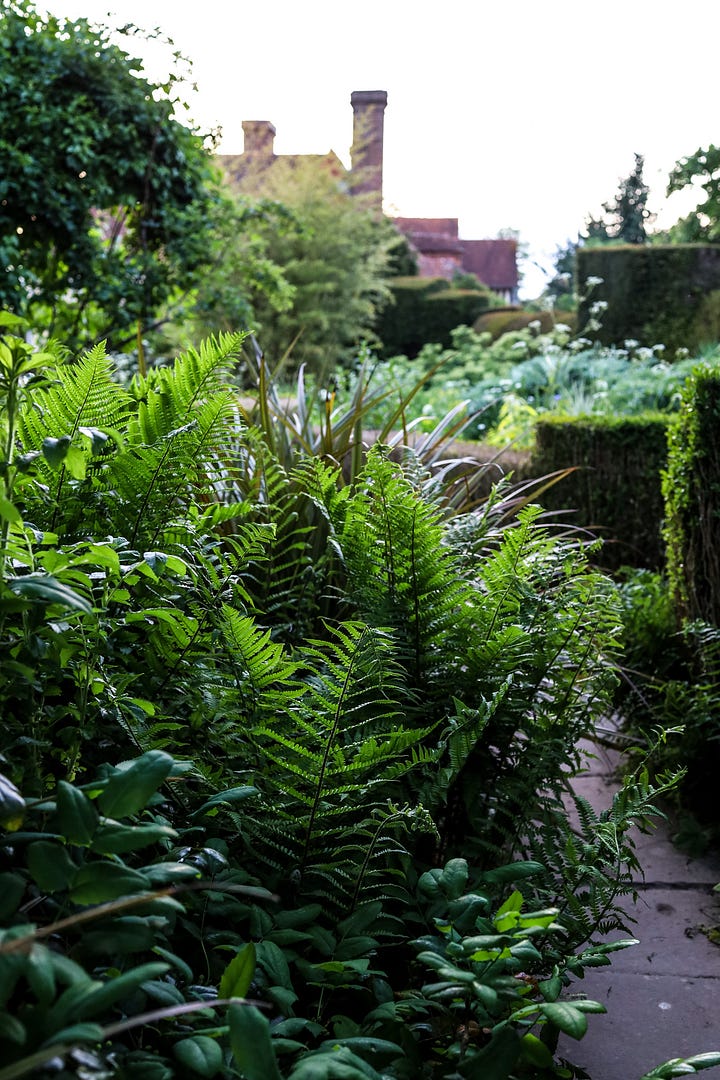
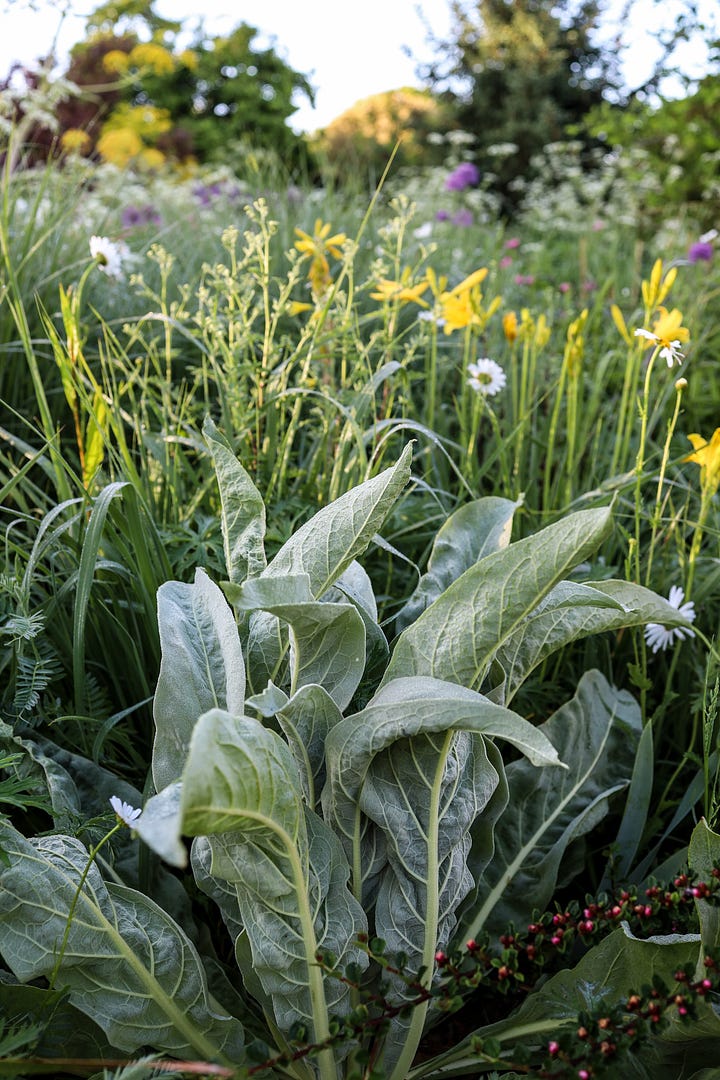
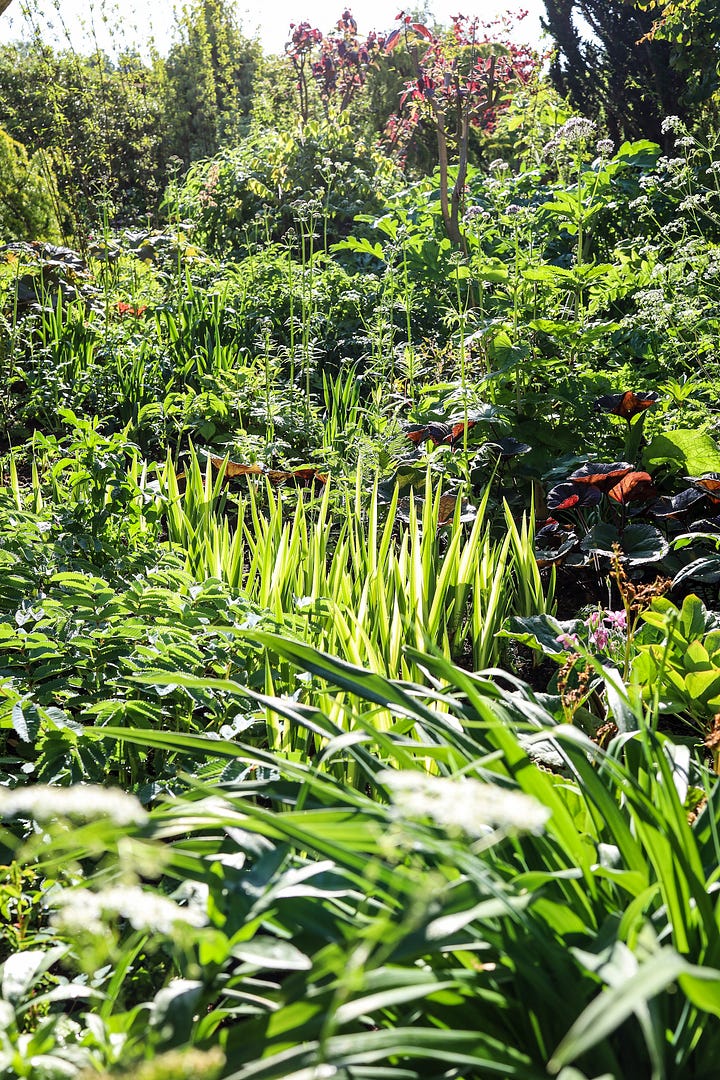
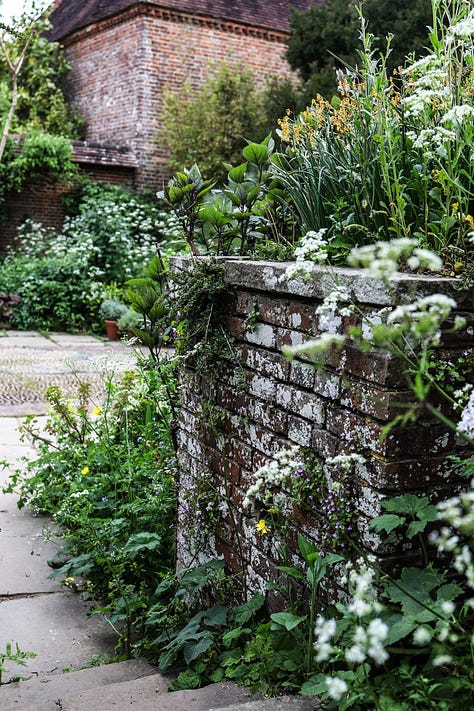
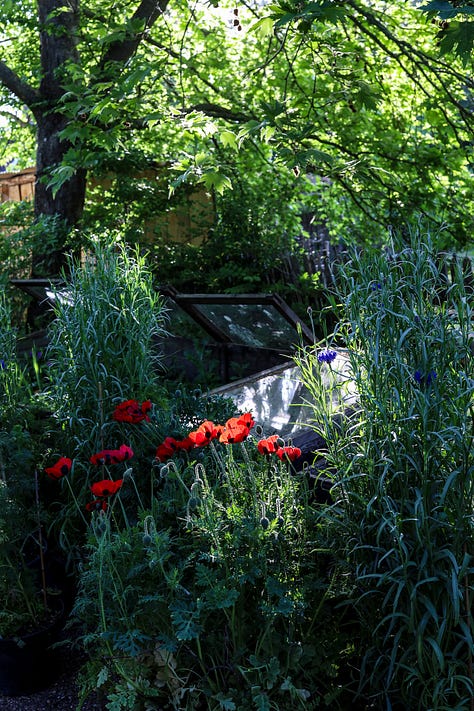
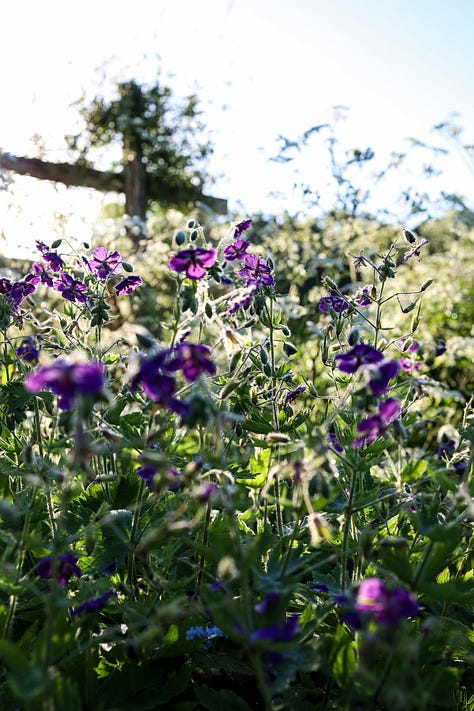
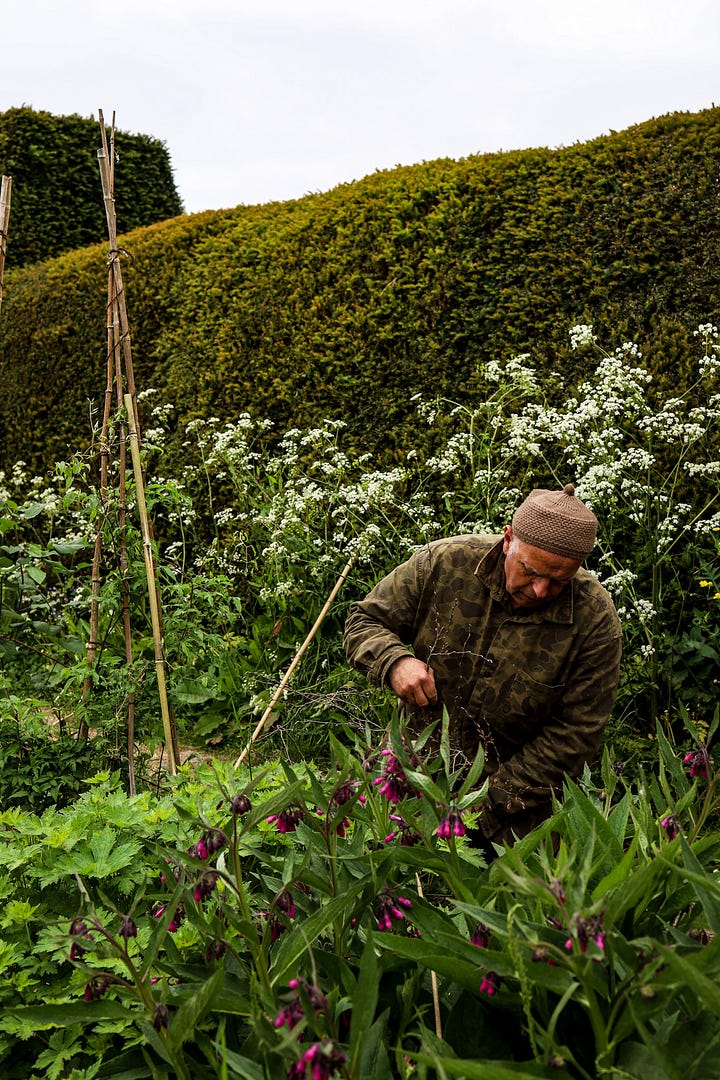
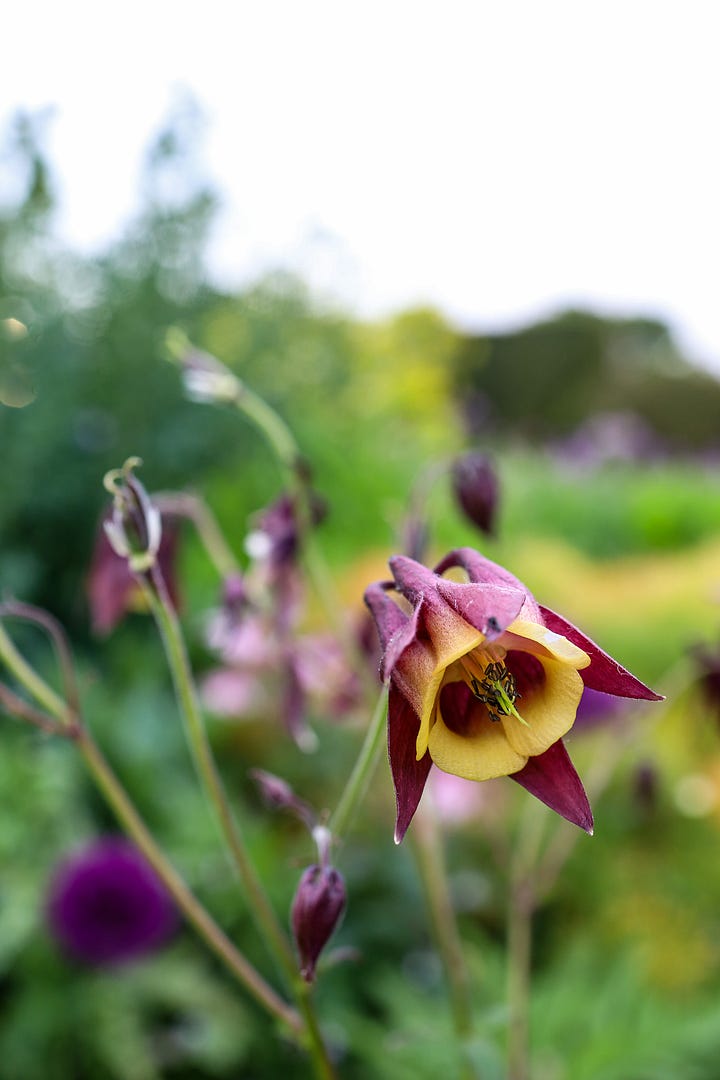

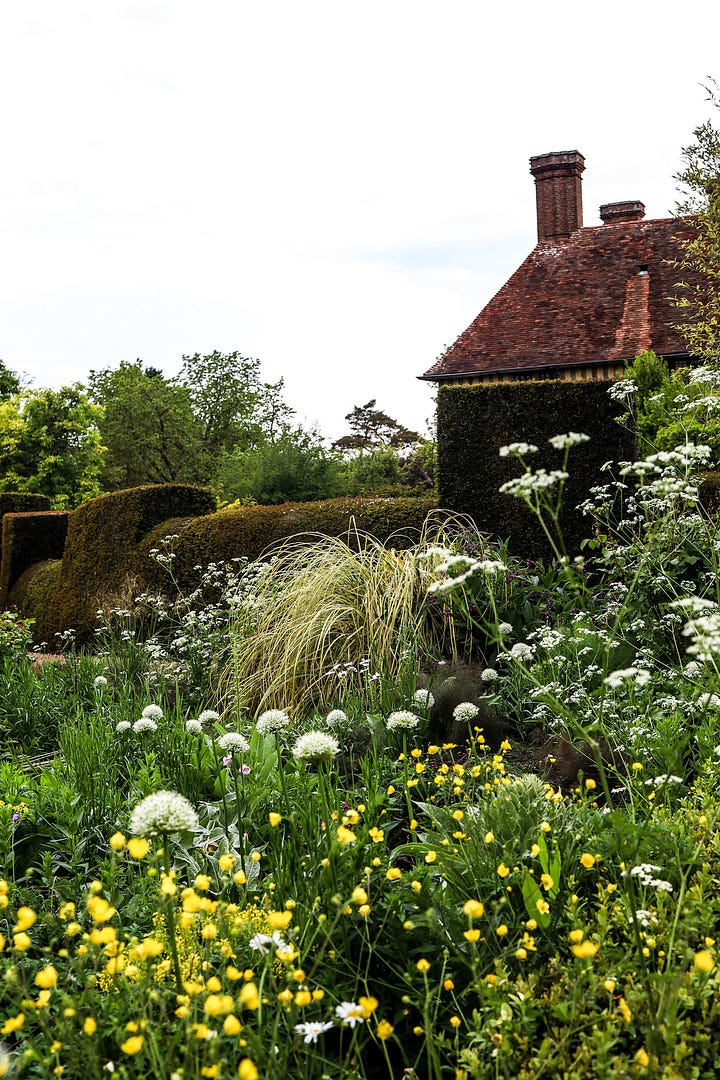
Thank you, as always, for being here readers and gardening friends. Pip xo


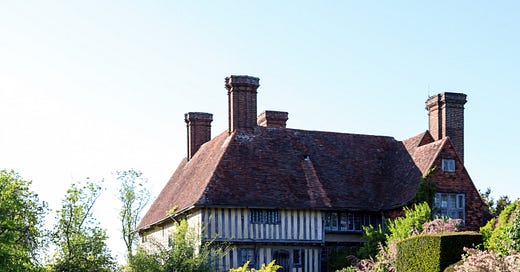



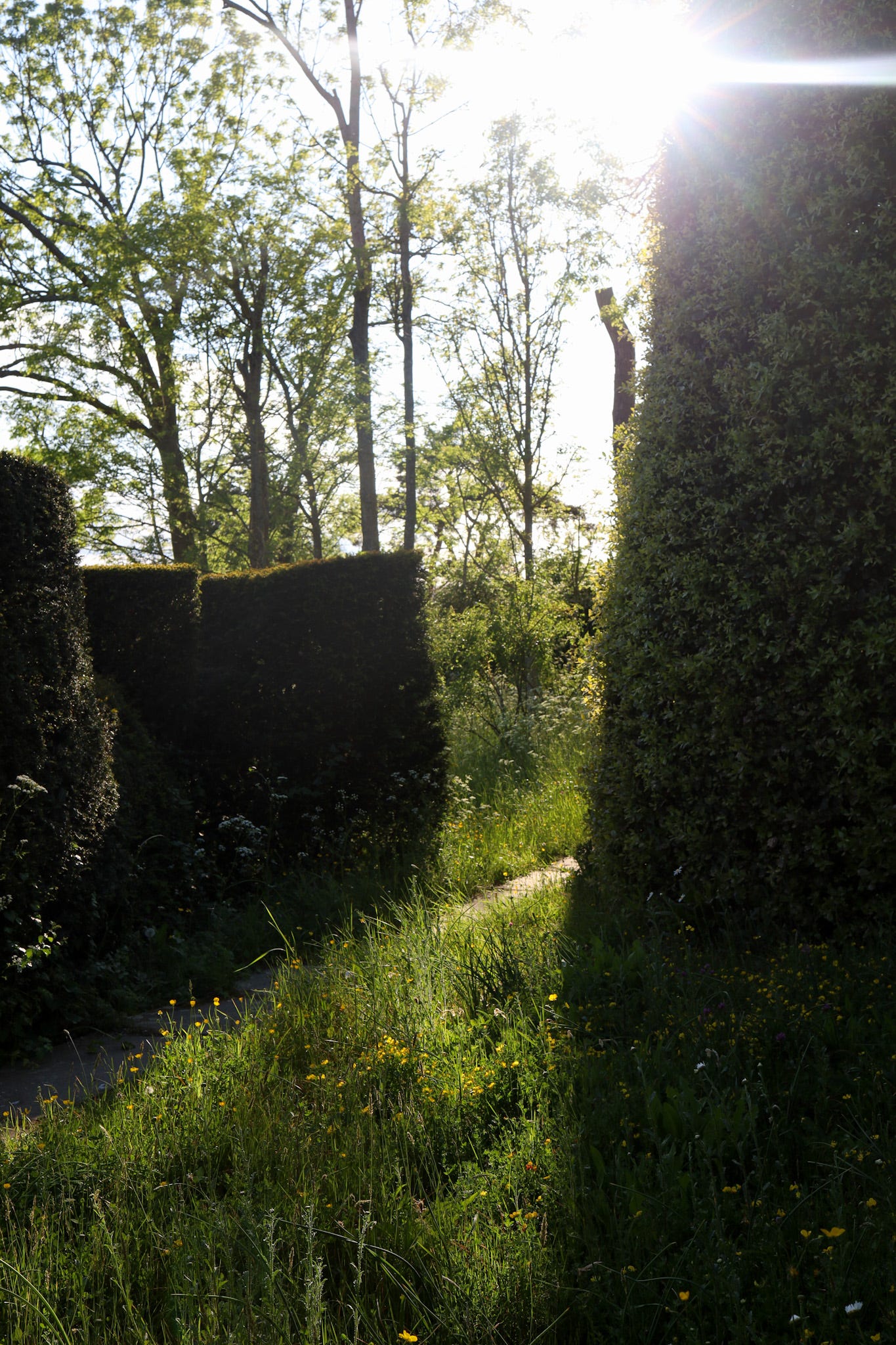
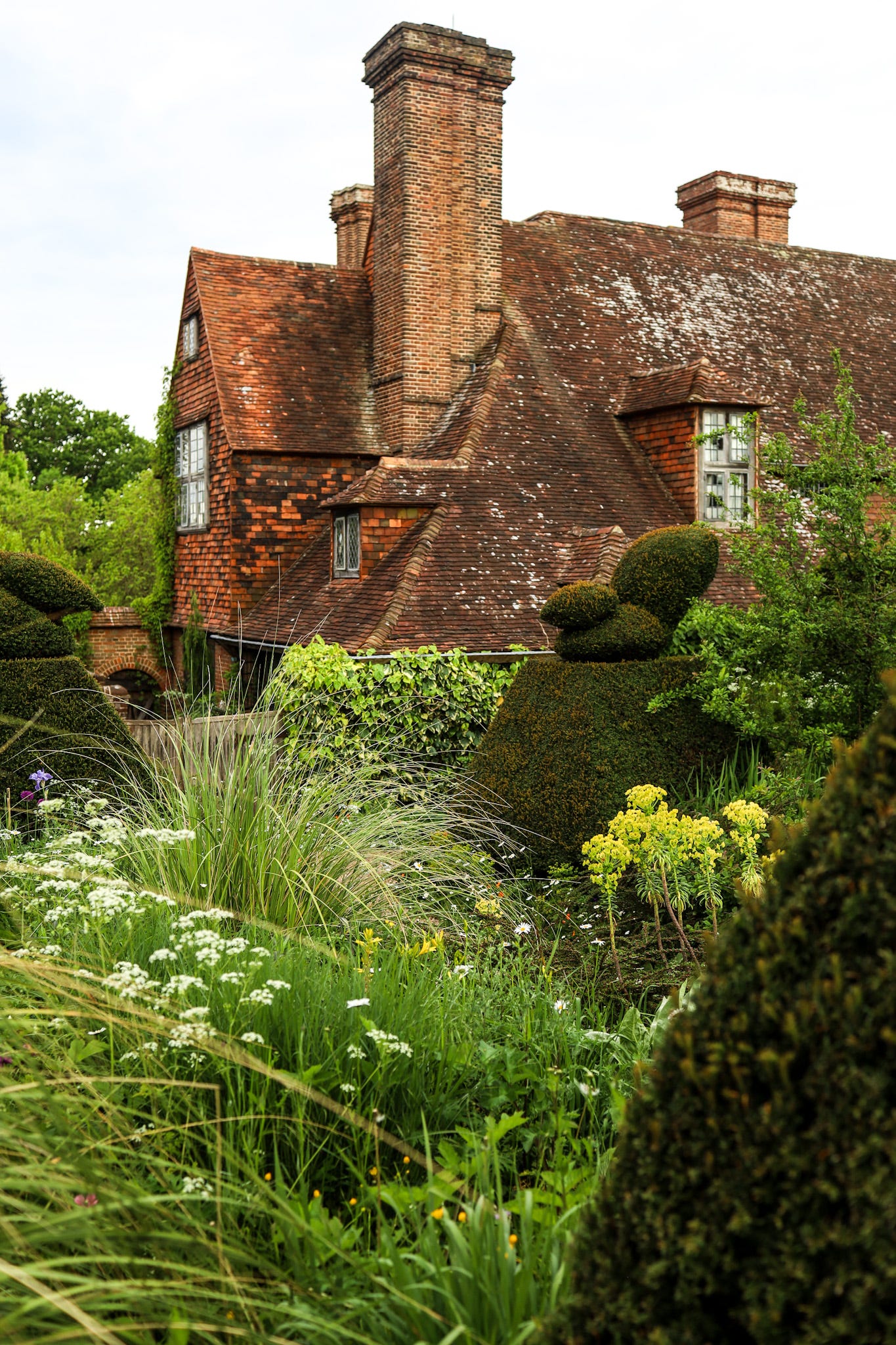



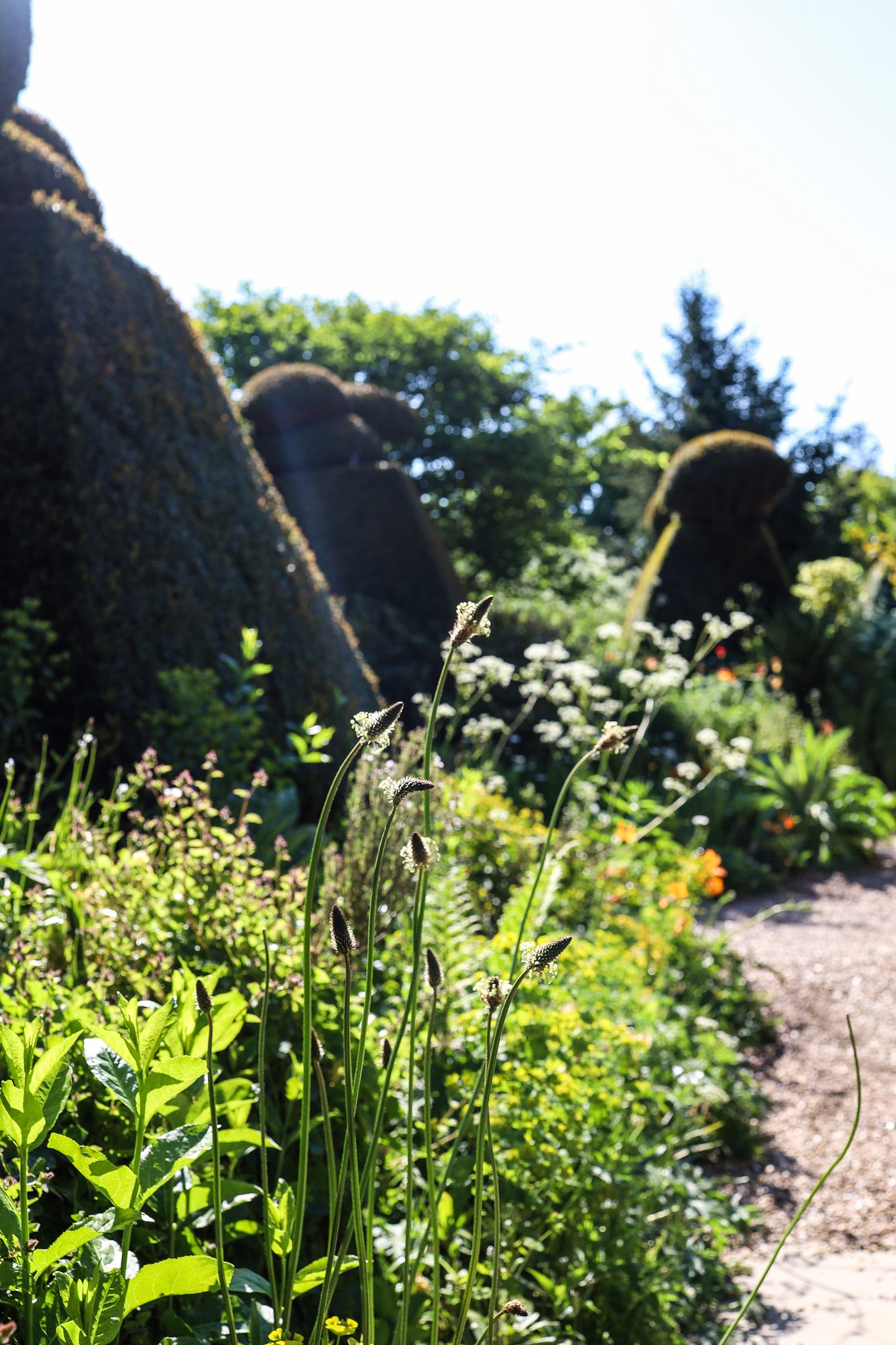
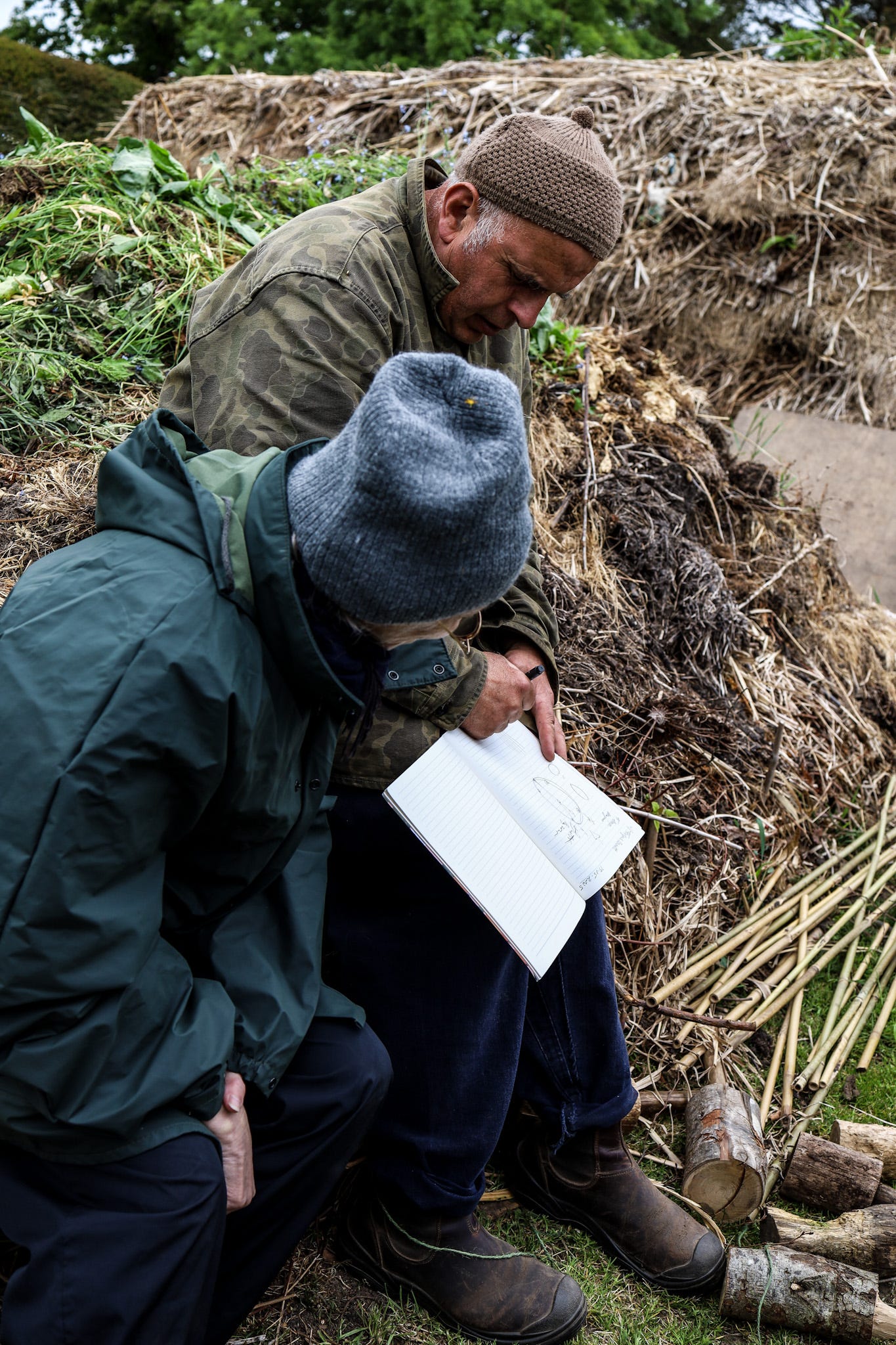


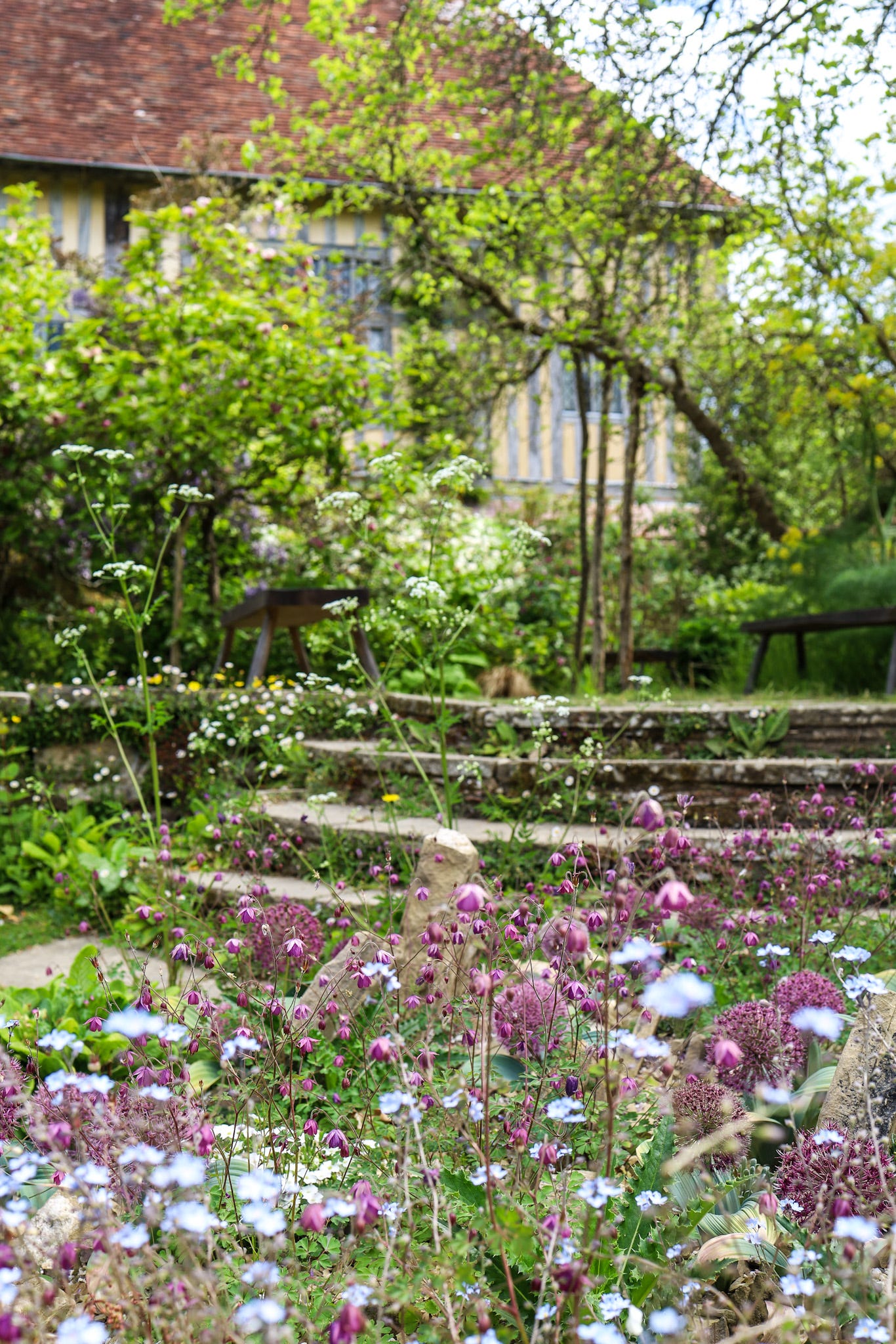


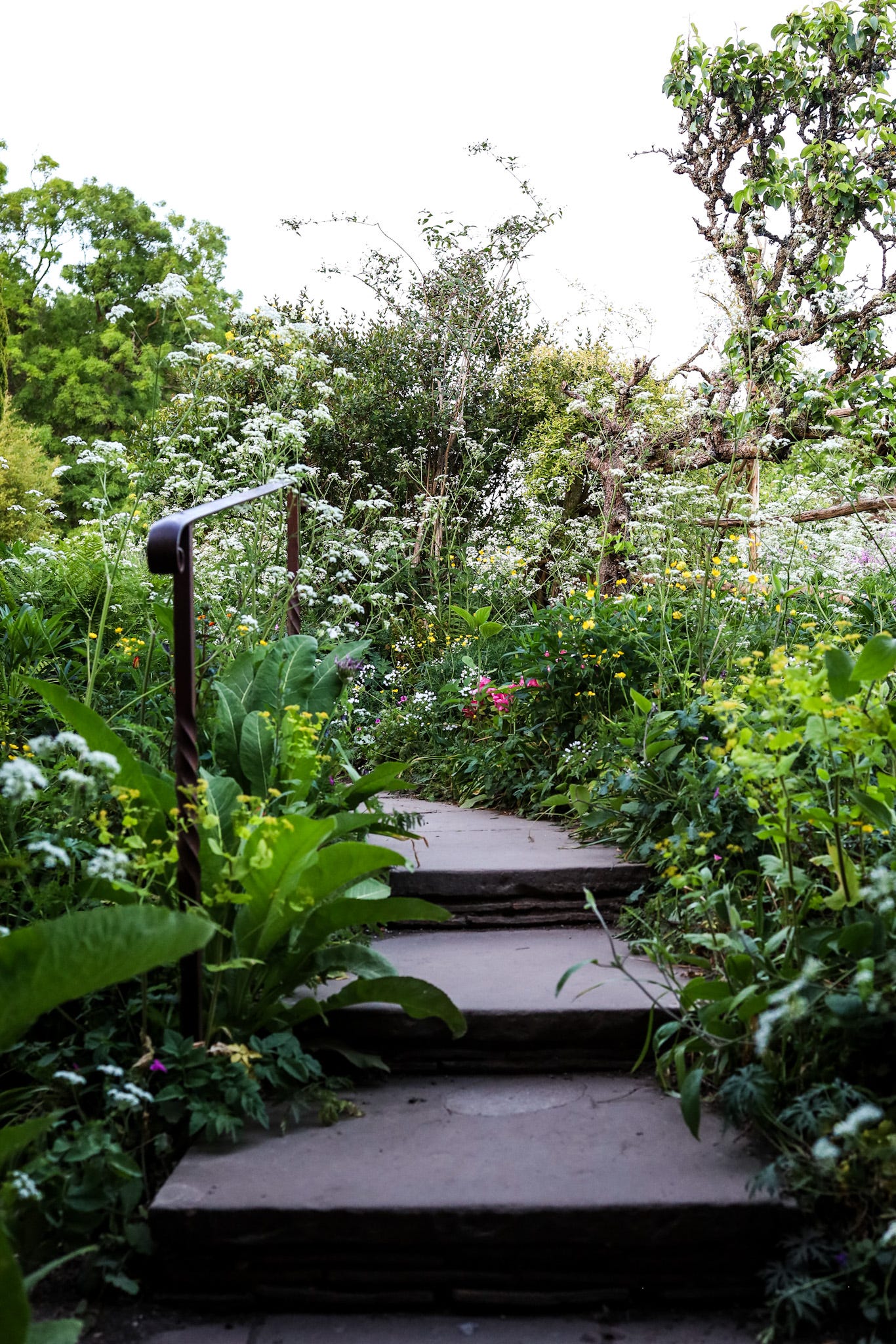
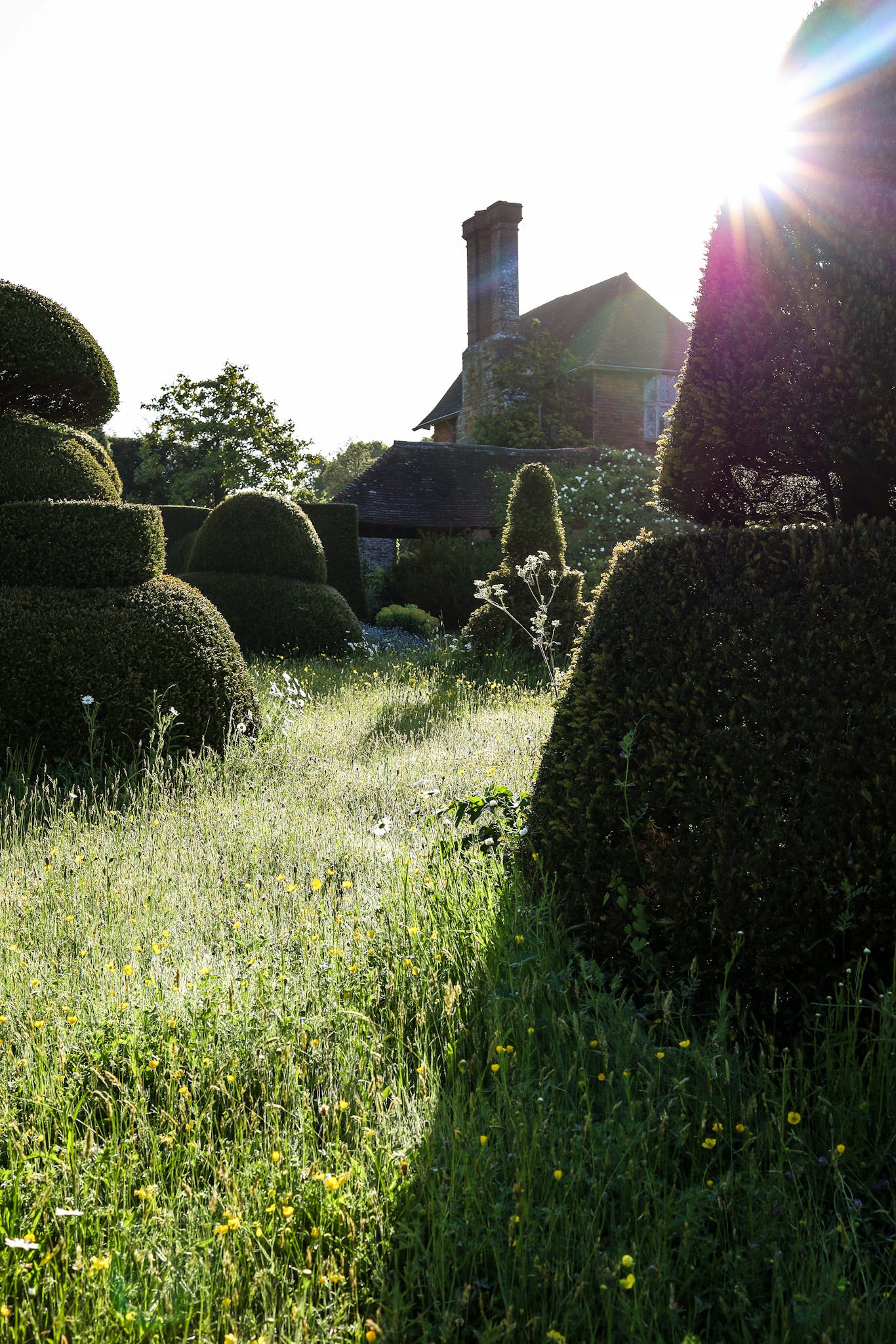
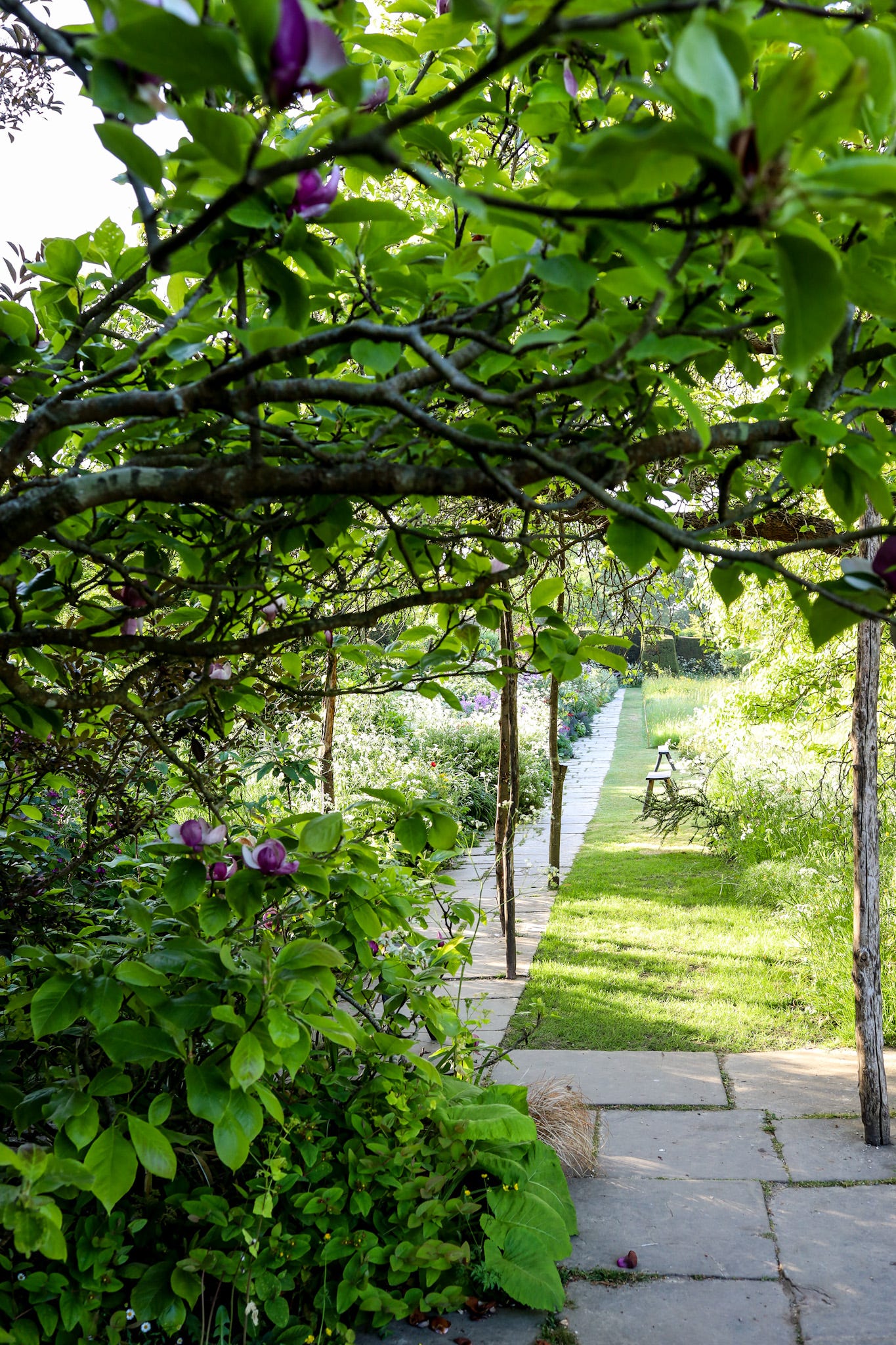




So good to feel you renewed and enthusiastic by your Dixter adventure
My eyes pop just looking at the pictures. I can understand how enriching, overwhelming and inspiring at the same time Dixter must have been. Absolutely amazing! Myst go some time.